Notes by Thalia
Lifestyle Design for Women
- Lifestyle Design
- Intentional Living
- Health & Wellness
- Productivity
- Buy me a coconut

Book Review; Mindset by Carol Dweck
February 22, 2021 · In: Tools
Last Updated on November 21, 2023 by Thalia
By the end of last year, I was exhausted from reading so many self-improvement books.
I never want reading to feel like a chore so I took a step back and filled up my cup with purely fiction.
So instead of picking up another non-fiction book, I thought I would revisit one of the first-ever self-improvement books I ever read.
Here’s everything I learnt and took away from reading Mindset by Carol Dweck.

It’s been a while since I’ve done a book review.
And the main reason for that is I’ve been making a conscious effort to read more fiction.
My reading really took a toll late last year as I was reading so many personal development books that I became exhausted.
I never want reading to feel like a chore.
I love to read.
So since the beginning of this year, I’ve been reading purely fiction to help me find that passion again.
And although those books were great, they weren’t exactly blog post material.
You’ll be happy to hear though that I have just picked up my first non-fiction book of the year;
You’re Not Listening by Kate Murphy.
So while we wait patiently for that book review, I thought I would revisit one of my favourite self-improvement books : Mindset by Carol Dweck.
Table of Contents
What is a fixed mindset, what is a growth mindset, my biggest takeaway from mindset, how to handle a fixed mindset, final thoughts, the lowdown on mindset by carol dweck.
Mindset by Carol Dweck is a fundamental book that everyone should read.
It focuses on changing the way we think to fulfil our potential.
Within the book, Dweck explores the power of our mindset and how success doesn’t just depend on our abilities or talent but rather on how we approach our goals; with a fixed or growth mindset.
But what does having a fixed or growth mindset actually mean?
Let’s break it down.
A fixed mindset is the belief that our “intelligence is static” and we cannot reach our full potential.
People with a fixed mindset try to avoid challenges. They give up easily, ignore useful feedback and feel threatened or jealous by the success of others.
Basically speaking, every time you’ve told yourself “I’m not smart enough” or “I will never succeed”, that’s your fixed mindset talking.
Having a growth mindset is the opposite of a fixed mindset.
It’s the belief that our “intelligence can be developed” therefore reaching high levels of achievement.
People with a growth mindset try new things, learn from their mistakes, embrace challenges and welcome feedback.
They strive to be better every day.

Throughout the book, Carol compares these two mindsets.
She shows us how a fixed mindset is usually the default mindset but how we can start adopting a growth mindset instead.
Carol Dweck draws upon case studies of well-known and famous people as examples to back up her points. e.g. Michael Jordan.
And this helped me to appreciate the book even more as I could relate it to people I was familiar with.
As a whole, this entire book is a takeaway.
Mindset has taught me a lot about my mindset issues and got me asking myself some very difficult and challenging questions.
During the first few chapters, I was quick to point out that I had a growth mindset.
I believe that we all have the potential to achieve our goals by learning and growing to get there.
I was never the smartest kid at school and I was never treated as though I would achieve great things. But I’ve never allowed this to get in my way.
Even Dweck says, “It’s not always the smartest people who end up the smartest.”
And this is so true. Because as I’ve gotten older I’ve spent more time honing my skills but also learning new ones. I’ve learnt from previous mistakes and failures and used them to my advantage by helping me improve. I have grown so much as a person and probably wouldn’t even recognise myself if I met 13-year-old me.
However, just because I have a growth mindset when it comes to certain things doesn’t mean that is true for all areas of my life.
I won’t get too personal here as a lot of this remains very private to me. What I will talk about though, is the way I perceive myself and the constant self-doubt I have knocking around in my head.
Like many others, I tell myself that I will never succeed. That I’m not good enough, that I will never be good enough. But this is my fixed mindset talking.
It pops up whenever I doubt myself, whenever I am challenged to do something new and during periods of anxiety. I always used to give in to it. Believe it. Let it win. But since reading Mindset , I have become more aware of why I have these feelings and how to handle them.
“It’s not always the people who start out the smartest who end up the smartest.” carol dweck | mindset
Carol Dweck tells us that instead of working against our fixed mindset, we need to instead give it a persona and embrace it.
And to do this, you must give your fixed mindset a name and befriend it.
You then need to figure out what triggers your fixed mindset so you can be ready for when it next shows up.
So this is what I’ve started to do now whenever I face moments of self-doubt, limiting beliefs or a lack of confidence.
Instead of letting my fixed mindset limit me, I’m telling it why I need to take this step and inviting it to follow me on this journey.
“Mindsets are just beliefs. They’re powerful beliefs, but they’re just something in your mind, and you can change your mind.” carol dweck | mindset
I must admit that I was slightly apprehensive about reading this book at first.
Carol is one of the world’s leading researchers in personality and social and developmental psychology so I felt that it would be highly academic and difficult to understand.
But it’s the complete opposite. Carol wanted this book to be easily digestible and easy to follow.
And that’s exactly what it is.
So if you’re going to buy any book this month make sure it’s this one by Carol Dweck, and invest in your mindset.
Until next week,
♡ Thalia xx
Let me leave you with this one last quote…
“Becoming is better than being.” Carol Dweck | Mindset
Disclaimer: Please note, this post contains affiliate links. If you make a purchase through these links then I will be rewarded at no extra cost to you. Any money earned through affiliates will be put towards running my blog and newsletter.
You’ll Also Love

December 6, 2023 at 11:34 am
This is my second time reading Carol Dweck’s book; the first time, I couldn’t go beyond the second chapter–I found the experiments and examples rather mundane. May be I was/ am biased. Reading it the second time, 4-years later, I am getting new insights that I could relate to especially after reading books and articles about creativity and innovation– whether these are innate abilities or can be taught? Having said that, I am a strong believer that learning/ creativity/ innovation are taught skills although having innate abilities does no harm. However, after reading many independent critics of Carol Dweck’s “Mindset”, my take is that a growth/ fixed mindset is something we “have” not what we “are.” Everything else is details.
December 19, 2023 at 7:49 am
So glad you gave Mindset another go! I think it is a great book to bring awareness around how mindset works (the fixed and growth aspects). Thanks for adding to the conversation and sharing your own perspective from the book!
Leave a Reply Cancel reply
Your email address will not be published. Required fields are marked *
Save my name, email, and website in this browser for the next time I comment.

How To Create a Productive Daily Routine You Love and Actually Stick To It
An email worth opening..
Join 5000+ women transforming their week one Sunday at a time

For More Daily(ish) Self-care
Join me on Instagram → @notesbythalia

- Privacy Policy
- Terms & Conditions
Tools & resources
- Book a Call With Me
- Lifestyle Design Program
- Core Values Workbook
- Resources & Freebies
- The Sunday Reset
- Read the Blog
Copyright © 2024 Notes by Thalia · Powered by Overwrite
Privacy Overview
Reset and recharge your mind with an intentional email every Sunday and navigate a new week with clarity and confidence.
Your Information is 100% secure and will never be shared with anyone. You can unsubscribe at any time.

Mindset The New Psychology of Sucess Summary, Review, Notes
Dr. Carol S. Dweck, the Professor of Psychology at Stanford, demonstrates in her book “Mindset,” how a person’s perspective on their own abilities and the range of possible mindsets has a significant impact on their performance in school, work, sports, the arts, and pretty much any other area of human endeavor. Dweck explains the distinction between what she calls “fixed” and “growth” mindsets.
Dweck compares the growth mindset with the fixed mindset, and how each affects learning, relationships, and self-improvement. Additionally, she offers doable methods for developing a growth mindset and overcoming the constraints of a fixed mindset.
Book Title— Mindset. The New Psychology of Success Author— Carol Dweck Date of Reading— March 2023 Rating— 9/10
Table of Contents
What is being said in detail, introduction.
In response to student requests, Dr. Carol S. Dweck, wrote Mindset to disseminate the findings she and her students had made together in class, primarily that a “mindset,” rather than natural talents or abilities, determines failure or success in a given situation.
The purpose of Dweck’s book is to demonstrate how a shift in perspective can improve one’s outlook on one’s career, friendships, relationships, and pursuit of one’s goals. To achieve our goals, we need to stop thinking of ourselves as static individuals and instead adopt a growth-oriented, open-minded perspective.
CHAPTER 1. The Mindsets
Dr. Carol Dweck has spent the past thirty years studying people who have achieved great success , finding that some of them reach their full potential while others remain average.
Dweck was surprised to see that some of the kids appeared to actively enjoy the harder puzzles when she observed children in a study where they were asked to solve progressively more challenging puzzles.
The author argues that while some kids will take their setbacks as definitive evidence of their inability or incapacity, others will see them through a different lens. They view setbacks as opportunities for growth, knowing that with each setback, they will gain valuable experience and knowledge that will help them become better performers.
The second group discovers that setbacks aren’t as terrible as they may have seemed at the time. She thinks the real question is whether you think talent is something you’re born with and just have to prove, or if you think it’s something you can hone and improve upon. A “growth mindset” describes the first mentality. A “fixed mindset” describes the second way of thinking.
People with a fixed mindset believe that their level of intelligence is immutable. They are extremely preoccupied with their intelligence and the other areas in which they excel.
On the other hand, they have a hard time taking on challenges because doing so could reveal their own shortcomings or insecurities. A person with a fixed mindset lacks the motivation to take on challenges and often has difficulty dealing with uncertainty as a result.
People who adopt a growth mindset view the world in a very different light from the get-go. They have a strong motivation to learn and grow as a result of their conviction that intelligence can be nurtured.
They welcome challenges because they know they will make them stronger. They see failure as a learning experience rather than a reflection of who they are, so they consider themselves winners no matter what the outcome.
Growth and skill acquisition are viewed as being dependent on putting forth an effort. Insightful data can be gleaned from criticism and negative comments.
How you feel about the unchangeability of intelligence and personality traits, or the possibility of making major changes in both, is an indicator of your own mindset.
Dweck challenges the reader to put himself in the shoes of both mindsets, noting how those with a growth mindset are more likely to embrace challenges and see them as opportunities for development.
CHAPTER 2. Inside The Mindsets
To succeed, you must cultivate an understanding of your own identity. That’s why it’s crucial that you know what goes into your decision-making process. When you know yourself inside and out, you have a better grasp of your abilities and limitations.
The journey to knowing oneself can take many forms. The Myers-Briggs Type Indicator, the Predictive Index, and the StrengthsFinder are just a few of the personality tests available.
You can learn about your own decision-making processes by keeping a journal in which you record your predictions for the outcomes of various choices and then compare these predictions with the actual outcomes.
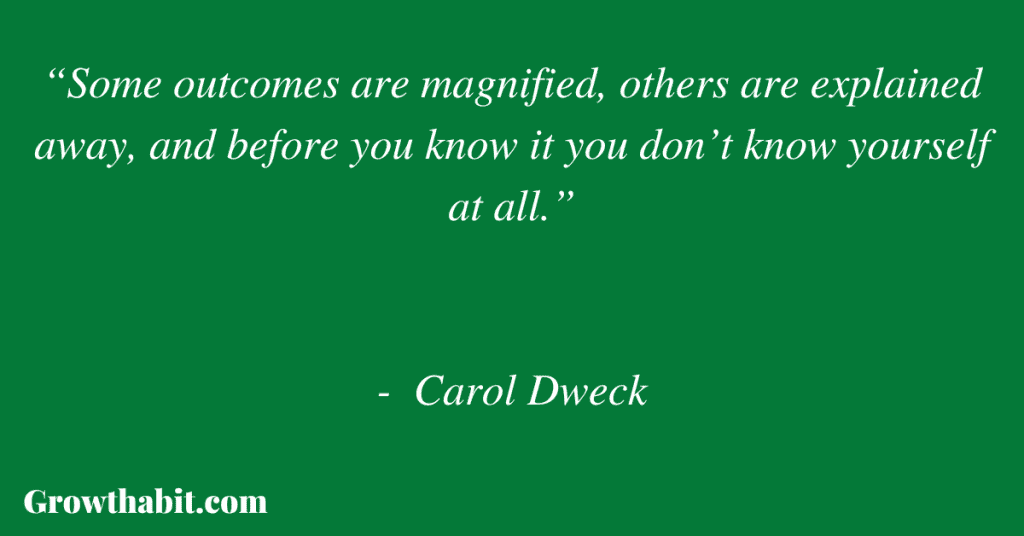
There is a distinction between these two perspectives on the importance of external validation and approval of our own success and excellence . People with fixed mindsets are constantly trying to win the approval of those around them.
To put it another way, they are seeking external validation of their abilities. Those who have a growth mindset don’t do that, not because they don’t care what other people think of their achievements, but because they don’t need other people’s approval to achieve their goals.
It is crucial that we are able to tell the difference between a growth mindset and a fixed mindset, as this can have profound effects on our outlook on the world.
CHAPTER 3. The Truth About Ability And Accomplishment
People with a fixed mindset regard effort as a waste of time and energy, whereas those with a growth mindset recognize the importance of such efforts in expanding one’s intelligence and achieving one’s goals.
Carol Dweck’s Ph.D. dissertation focused on the difference between a fixed and a growth mindset. Her experiment investigated how a person’s attitude toward their own failures affected their performance.
The theory was that when inability was perceived as the root cause of failures, people would become inhibited or lack confidence in situations where they had previously excelled. On the other hand, difficulties and challenges can motivate you to work even harder.
Dweck and her team conducted an experiment on “helpless” elementary school students to test this theory. In fact, they discovered that if the kids encountered a few math problems they couldn’t solve, they lost the ability to solve problems they had previously mastered, and for some, this loss of ability lasted for days.
The group then worked with half of the students, teaching them to blame themselves for their failures while also encouraging them to try again. These young people learned to persevere in the face of adversity and achieve their goals. The non-treatment group made no progress and continued to deteriorate quickly, recovering only slowly.
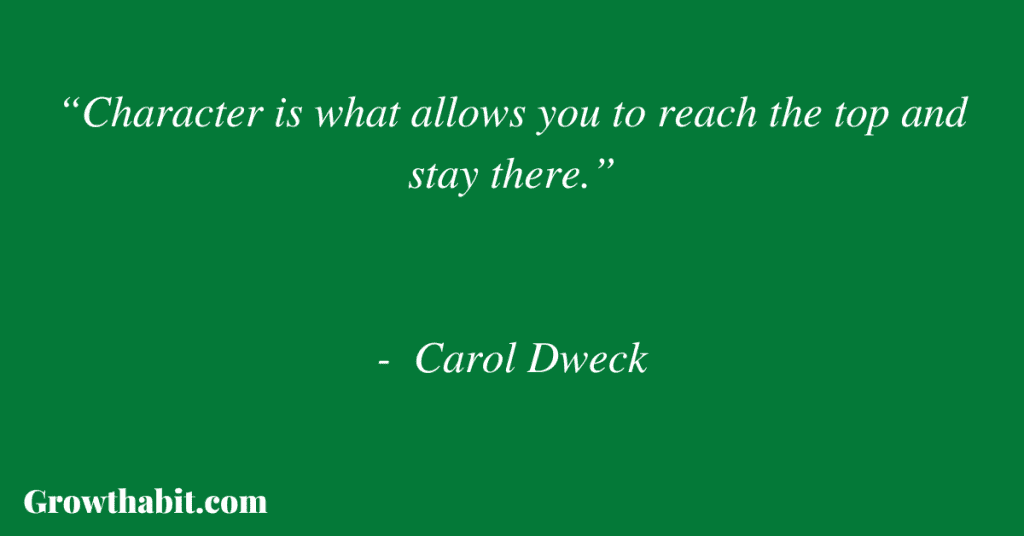
Dweck’s research found that “their goals” distinguished students who persevered in the face of adversity from those who gave up. Progress toward “learning goals” or “performance goals” can be influenced in a variety of ways.
Dweck also addresses the issues that contribute to individual differences in how much emphasis is placed on various goals. She concludes that people with a growth mindset perceive ‘ability’ differently than people with a fixed mindset.
If you have a fixed mindset, you expect a certain level of performance from yourself and believe that your natural talent is fixed. When you adopt a growth mindset, you believe that intelligence can be developed and that the challenges that come with learning are exciting.
There are things you can do to improve if you have a fixed mindset and realized it while reading this summary. Dweck advises us to think about our heroes and the qualities that make them so admirable.
Do the people you admire appear to have risen to prominence with little effort on their part? If this is the case, inquire about the effort that led to their success. Make sure you’re pushing yourself by setting lofty goals. Then, make a promise to yourself that no failures or difficulties will deter you from your quest.
Failures and defeats can be highly instructive if we take the time to reflect on what went wrong and apply what we’ve learned to future attempts at the same challenge. Failure and defeat have the potential to motivate us, and they frequently do. When we’ve worked hard to get there because of that inspiration, success tastes much better and is more rewarding.
CHAPTER 4. Sports: The Mindset of a Champion
Many people believe that natural talent alone is sufficient to reach the pinnacle of any field of endeavor, including sports. This false belief, however, is typical of people with fixed mindsets.
The evidence for the success that can be achieved through effort and training is all around us, and this is consistent with the belief that a growth mentality can be developed.
A gifted athlete risks being stymied by his or her own abilities. The main reason for this is that gifted people tend to overvalue their natural abilities while undervaluing the value of consistent, hard work.
The distinctions between fixed and development mindsets are most visible in how they interpret an individual’s behavior.
Athletes who are widely regarded as “naturals,” such as Michael Jordan, Babe Ruth, and Jackie Joyner-Kersee, required countless hours of hard work to achieve their peak levels of performance.
In comparison, Boston Red Sox pitcher Pedro Martínez succumbed to the fixed mindset. Because he was constantly praised, he began to believe that any shortcomings were the result of outside influences. When the Red Sox began losing to the New York Yankees in October 2001, Martínez went on a rant, attacking his own coach and threatening players.
His inability to overcome adversity resulted in a disastrous outcome, and the Yankees went on to win the game.

The conceptual distinction between fixed and development mindsets is again at work here, and this is where a person’s personality really shines through.
While those with a fixed mindset place undue emphasis on natural ability, those with a development mindset recognize that talent is only partially utilized before it reaches its full potential in the absence of practice.
When you have a champion’s mentality, you understand that everyone around you is important, regardless of the sport you play.
CHAPTER 5. Business: Mindset And Leadership
Carol Dweck’s research has expanded to include an examination of company-wide mindsets. Dweck and her new research team polled employees from seven large organizations to determine their level of agreement with phrases intended to indicate whether their workplace fostered a fixed or development mentality.
The authors of the study wanted to know if managers with a growth or fixed mindset had a more positive or negative impression of their employees, as well as if employees were more satisfied with their jobs, coworkers, and opportunities for innovation, ethics, and collaboration.
Employees of both growth-oriented and fixed-orientation businesses expressed a similar level of agreement when polled. Employees with a fixed attitude in a company were more likely to report that only a few “star” employees received preferential treatment.
They had less faith in the company and were less committed to their jobs than those who worked for companies with a growth mindset. Because they were afraid of failing, they tried fewer new things and were more likely to lie, steal, and take shortcuts.
Employees who have a “growth mindset” are more likely to have the following favorable attitudes toward their employer:
- 47% believe their coworkers are trustworthy;
- 34% believe they are loyal and committed to the company;
- 5% believe they are encouraged to take risks; and
- 49% believe the company supports innovation.
Companies can foster a growth mindset by providing opportunities for professional development (such as paid training and educational grants), encouraging employees to look internally for new hires, and offering financial incentives for creative problem-solving.
CHAPTER 6. Relationships: Mindsets In Love (Or Not)
It’s no surprise that a fixed mindset can destroy even the strongest friendships and partnerships. A “stuck perspective assures relationship suffering, and even disaster,” says relationship expert Rinatta Paries.
This is especially troubling because she believes that the majority of men and women have a fixed worldview when it comes to romantic relationships.
The majority of singles agree that finding the right partner is critical to having a successful romantic relationship. Many people believe that once they’ve found “the one,” their relationship will run smoothly and provide a solid foundation for the rest of their lives.
Furthermore, they frequently believe that the “correct” partner will accept them exactly as they are, and that this is a necessary condition for happiness in a relationship. While it is natural and healthy to want to be liked and accepted, focusing solely on that goal can be detrimental to interpersonal relationships.
According to Paries, a relationship is doomed when one person remains static while the other strives for growth. Breakups happen when one partner in a relationship wants to change and the other partner is opposed.
Another result of the fixed mindset is the belief that our partners should be telepathic. This leads to misunderstandings and unfair blame attributions to our partners’ personalities. Friendships are harmed when people with fixed ideas foster unhealthy rivalries.
If you have a growth mindset, choose a companion who thinks and acts similarly to you. If you don’t, you’ll be pleading with someone who doesn’t believe they can or will be able to make the necessary changes to your request.
If you’re stuck in your ways and need a gentle reminder that long-term relationships require give and take on both sides, consider this: if you want a long-term partner, you’ll need to learn to accept change.
CHAPTER 7. Parents, Teachers, and Coaches: Where Do Mindsets Come From?
While it’s natural for parents to want to lift their children’s spirits, it’s important to remember that praise can be used in both directions.
Children should not be praised for their “innate talent,” as this promotes a preconceived worldview. High-achieving students are taught to avoid making mistakes in order to avoid being chastised for their efforts.
Instead of focusing on a child’s fixed abilities, it’s important to recognize and reward their efforts and outcomes in order to foster a growth mindset. Rather than praising a child for intangible characteristics, this reinforces the child’s efforts and provides specific feedback.
When her children complete a task quickly and correctly, Dweck says, “I guess that was too simple… “Come on, let’s do something instructive!” By being exposed to adversity in this manner, children learn to see it as an opportunity.
Parents who put too much pressure on their children to succeed risk having their love interpreted as conditional.
Educators are no exception. It’s a self-fulfilling prophecy that teachers who label their students as achievers or non-achievers will see those labels reflected in their students’ performance throughout the year.
CHAPTER 8. Changing Mindsets: A Workshop
According to Dweck’s research, it is possible to shift from a limiting “fixed” mindset to a more adaptive “growth” mindset. The first step is to become acquainted with oneself. First and foremost, stop trying to avoid difficulty and start dealing with it.
To tune into the new perspective, start responding to your fixed mindset voice (FM) as if you already had a growth mindset (GM). Examples include:
FM: “You can’t do this, You’re just not talented enough.”
GM: “I believe I can master this with practice,”
Fm: “What if you fail? You will fail if you attempt to do so”
GM: “Most successful people fail along the way,”
FM: “If you had the talent, this would be easy.”
GM: “That is not correct, every day, elite athletes put in countless hours of practice to hone their skills.”
Whichever voice you give the most weight to, will shape your decisions and the way you think in the long run. It is critical to train yourself to recognize both perspectives while responding with a growth mindset.
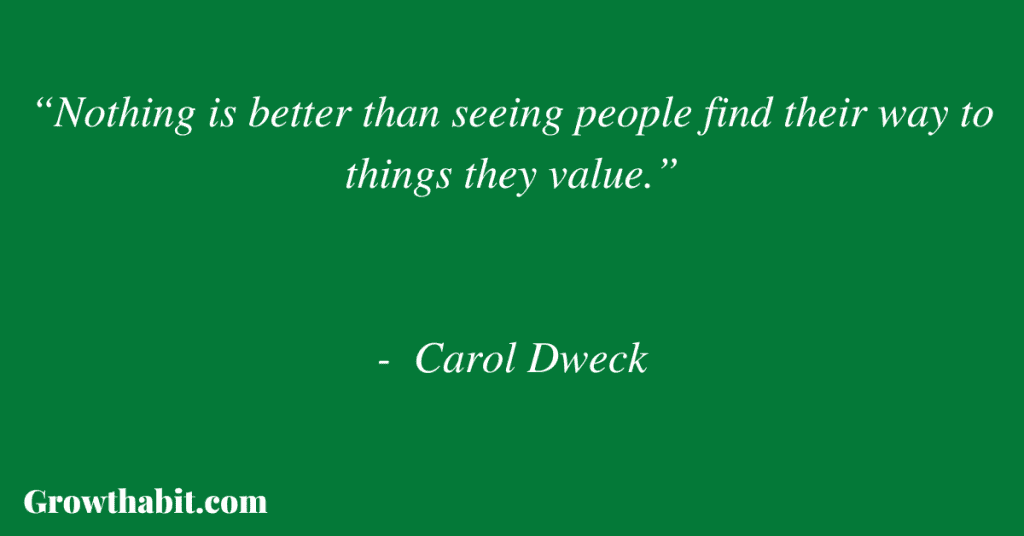
Every day offers opportunities for growth and development. We must devise strategies for capitalizing on these opportunities, and if those strategies fail, we must devise new ones. If we are successful, we must consider how to continue expanding.
Most Important Keywords, Sentences, Quotes
“The passion for stretching yourself and sticking to it, even (or especially) when it’s not going well, is the hallmark of the growth mindset. This is the mindset that allows people to thrive during some of the most challenging times in their lives.”
“Some outcomes are magnified, others are explained away, and before you know it you don’t know yourself at all.”
“The fixed mindset makes you concerned with how you’ll be judged; the growth mindset makes you concerned with improving.”
“Mindsets are just beliefs. They’re powerful beliefs, but they’re just something in your mind, and you can change your mind.”
“Smart people should always succeed. But for children with the growth mindset, success is about stretching themselves. It’s about becoming smarter.”
“Those who have a growth mindset agree that: “You can always substantially change how intelligent you are”.”
“There are many myths about ability and achievement, especially about the lone, brilliant person suddenly producing amazing things.”
“For students with the growth mindset, it doesn’t make sense to stop trying.”
“Because they think in terms of learning, people with the growth mindset are clued in to all the different ways to create learning.”
CHAPTER 4. Sports: The Mindset of a Champion
“The naturals, carried away with their superiority, don’t learn how to work hard or how to cope with setbacks.”
“Character is what allows you to reach the top and stay there.”
“Character, heart, the mind of a champion. It’s what makes great athletes and it’s what comes from the growth mindset with its focus on self-development, self-motivation, and responsibility.”
CHAPTER 5: Business: Mindset And Leadership
“Obviously, a company that cannot self-correct cannot thrive.”
“Fixed-mindset leaders, like fixed-mindset people in general, live in a world where some people are superior and some are inferior.”
“When you enter the world of the growth-mindset leaders, everything changes. It brightens, it expands, it fills with energy, with possibility.”
“It had to be a person with the fixed mindset who coined the phrase “Revenge is sweet”—the idea that with revenge comes your redemption— because people with the growth mindset have little taste for it.”
“The growth mindset says all of these things can be developed. All—you, your partner, and the relationship—are capable of growth and change.”
“In fact, every word and action sends a message. It tells children—or students, or athletes—how to think about themselves.”
“Praising children’s intelligence harms their motivation and it harms their performance.”
“When parents help their children construct growth-minded ideals, they are giving them something they can strive for.”
“Nothing is better than seeing people find their way to things they value.”
“Even when you change, the old beliefs aren’t just removed like a worn-out hip or knee and replaced with better ones. Instead, the new beliefs take their place alongside the old ones, and as they become stronger, they give you a different way to think, feel, and act.”
Book Review (Personal Opinion):
Carol S. Dweck’s book Mindset: The New Psychology of Success is about human thoughts and how they can influence how we live our daily lives. Written in the style of a self-help guide, this book is packed with useful tips and insights for improving your life.
Dweck did a ton of research and preparation for this book, which is fascinating and admirable in and of itself. The author’s “mindset” of how people’s unique perspectives and experiences lead them to live their lives in such different ways is based on extensive research spanning many years.
According to the author’s observations, there are two completely different ways of thinking; however, she found that there is a way for people with these two perspectives to communicate with one another.
Dweck provides concrete examples of how our choice of mindset determines our trajectories in life by combining her own research with that of prominent psychologists, educators, and researchers.
Although she concedes that many factors, such as gender, race, and socioeconomic background, are beyond our control, she maintains that these do not have to determine our destinies.
At the end of each chapter, the author includes a “Grow Your Mindset” section titled “Examine Your Beliefs and Actions in This Area” in which the reader is prompted to do some mental exercises to adopt a growth mindset and evaluate their own beliefs and actions .
Mindset: The New Psychology Today is a book that will expand your horizons with its insightful and thought-provoking content. There is never a dull moment in the book itself. Instead, it will take the reader on a journey that will provide him with new and valuable information that will help him live a better life.
Rating : 9/10
This Book Is For:
- People who are seeking personal growth and development
- People who want to improve their mindset and achieve greater success in life.
- People who want to cultivate a growth mindset to achieve your full potential
If You Want to Learn More
Here is an interview with author Carol Dweck about her research into “self-conceptions (or mindsets) people use to structure the self and guide their behavior”, and how you can apply a Growth Mindset at home, at school, and in your career. The Growth Mindset | Carol Dweck | Talks at Google.
How I’ve Implemented The Ideas From The Book
I procrastinated and felt burdened by deadlines. After reading Carol Dweck’s “Mindset,” my perspective shifted.
I realized I needed to adopt a growth mindset and believe that hard work and practice would improve my productivity and time management. I defined job objectives and broke them down into smaller, more manageable chunks. I also set aside daily time for these chores and held myself accountable.
Failures provided me with valuable learning opportunities. I used missed deadlines and low productivity as feedback to improve my time management and productivity. I assessed my strengths and weaknesses and sought resources and assistance to help me improve.
I overcame procrastination and became more productive and efficient by adopting a growth mindset, setting goals, and viewing failures as learning opportunities. I was able to achieve my objectives through concentration and determination.
One Small Actionable Step You Can Do
Start paying attention to your self-talk as a first step toward developing a growth mindset. Take note of how you speak to yourself when faced with difficulties or setbacks.
If you notice you have a fixed mindset, try rephrasing your self-talk to be more positive and growth-oriented. Instead of telling yourself, “I’m just not good at this,” you could say, “I may not be good at this yet, but I can improve with practice and hard work.”
You can begin to shift your mindset toward growth by changing the way you talk to yourself. This can lead to increased confidence, resilience, and willingness to take on new challenges over time.
Remember that adopting a growth mindset is a process, and changing old habits and beliefs takes time and effort. However, by taking small steps, such as paying attention to your self-talk, you can begin to move toward a more positive and growth-oriented mindset.
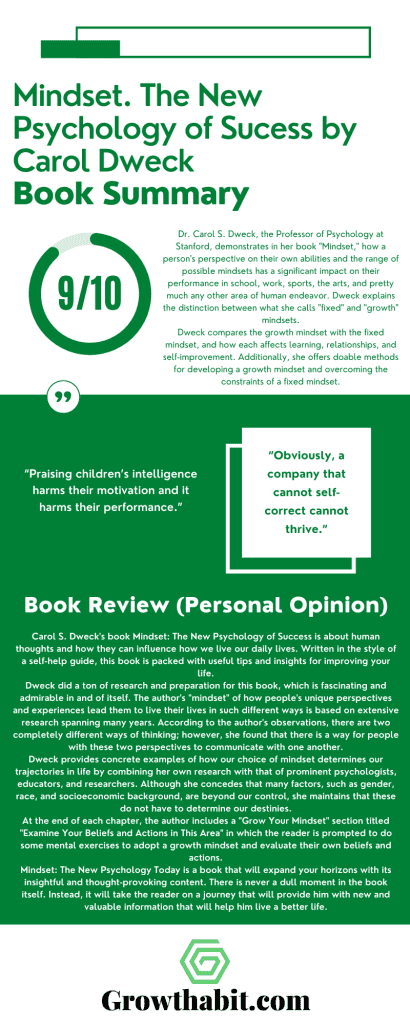
Bruno Boksic
Recent posts.
- The Awakening Book Summary, Review, Notes
- Blood Meridian Book Summary, Review, Notes
- The House on Mango Street Book Summary, Review, Notes
- The Midnight Library Book Summary, Review, Notes
- Their Eyes Were Watching God Book Summary, Review, Notes
- NONFICTION BOOKS
- BEST NONFICTION 2023
- BEST NONFICTION 2024
- Historical Biographies
- The Best Memoirs and Autobiographies
- Philosophical Biographies
- World War 2
- World History
- American History
- British History
- Chinese History
- Russian History
- Ancient History (up to 500)
- Medieval History (500-1400)
- Military History
- Art History
- Travel Books
- Ancient Philosophy
- Contemporary Philosophy
- Ethics & Moral Philosophy
- Great Philosophers
- Social & Political Philosophy
- Classical Studies
- New Science Books
- Maths & Statistics
- Popular Science
- Physics Books
- Climate Change Books
- How to Write
- English Grammar & Usage
- Books for Learning Languages
- Linguistics
- Political Ideologies
- Foreign Policy & International Relations
- American Politics
- British Politics
- Religious History Books
- Mental Health
- Neuroscience
- Child Psychology
- Film & Cinema
- Opera & Classical Music
- Behavioural Economics
- Development Economics
- Economic History
- Financial Crisis
- World Economies
- How to Invest
- Artificial Intelligence/AI Books
- Data Science Books
- Sex & Sexuality
- Death & Dying
- Food & Cooking
- Sports, Games & Hobbies
- FICTION BOOKS
- BEST NOVELS 2024
- BEST FICTION 2023
- New Literary Fiction
- World Literature
- Literary Criticism
- Literary Figures
- Classic English Literature
- American Literature
- Comics & Graphic Novels
- Fairy Tales & Mythology
- Historical Fiction
- Crime Novels
- Science Fiction
- Short Stories
- South Africa
- United States
- Arctic & Antarctica
- Afghanistan
- Myanmar (Formerly Burma)
- Netherlands
- Kids Recommend Books for Kids
- High School Teachers Recommendations
- Prizewinning Kids' Books
- Popular Series Books for Kids
- BEST BOOKS FOR KIDS (ALL AGES)
- Ages Baby-2
- Books for Teens and Young Adults
- THE BEST SCIENCE BOOKS FOR KIDS
- BEST KIDS' BOOKS OF 2023
- BEST BOOKS FOR TEENS OF 2023
- Best Audiobooks for Kids
- Environment
- Best Books for Teens of 2023
- Best Kids' Books of 2023
- Political Novels
- New History Books
- New Historical Fiction
- New Biography
- New Memoirs
- New World Literature
- New Economics Books
- New Climate Books
- New Math Books
- New Philosophy Books
- New Psychology Books
- New Physics Books
- THE BEST AUDIOBOOKS
- Actors Read Great Books
- Books Narrated by Their Authors
- Best Audiobook Thrillers
- Best History Audiobooks
- Nobel Literature Prize
- Booker Prize (fiction)
- Baillie Gifford Prize (nonfiction)
- Financial Times (nonfiction)
- Wolfson Prize (history)
- Royal Society (science)
- Pushkin House Prize (Russia)
- Walter Scott Prize (historical fiction)
- Arthur C Clarke Prize (sci fi)
- The Hugos (sci fi & fantasy)
- Audie Awards (audiobooks)
Book Reviews on...
Mindset: the new psychology of success, by carol dweck.
Mindset: The New Psychology of Success by Carol Dweck, the renowned Stanford University psychologist who discovered a truly groundbreaking idea–the power of our mindset.
Recommendations from our site
“Without exaggeration, I’ve never met a CEO who didn’t have Mindset on their bookshelf. It resonates with people who have become successful because the belief that your abilities can grow is foundational to their achievements.” Read more...
The best books on Character Development
Angela Duckworth , Psychologist
“This is great. It’s a self-help book, but it’s written by one of the most well-respected social psychologists. Dweck has done really groundbreaking work over several decades, and found that there are differences in how people think about success and achievement.” Read more...
The best books on Essentialism
Susan Gelman , Psychologist
“This book can teach you to raise motivated and compassionate children and help them become adults with grit, resilience and compassion.” Read more...
The best books on Educating Your Child
Peg Tyre , Journalist
The book, according to the author
“In my work I’ve discovered that people can have different mindsets about their talents and abilities, and that these mindsets make a big difference. Some people believe that their talents and abilities are fixed traits – they have a certain amount and that’s that. We call this a fixed mindset. But other people have a growth mindset. They believe that their talents and abilities can be developed through hard work, perseverance and mentoring.
We’ve found that when people have a fixed mindset they often shy away from challenges. For them, deficiencies are permanent and so they are afraid to reveal them. People with fixed mindsets are also not as resilient in the face of setbacks because, again, they see setbacks as impugning their underlying abilities. Challenge-seeking and resilience are key factors in success. As a result, people with fixed mindsets often don’t achieve as much in the long run.
Seeing effort as something shameful is a liability because effort is what takes our abilities to fruition. Since I wrote Mindset I got letters from people who were child prodigies. As youngsters they were told, “You’re so smart you’ll be this, you’ll be that,” but effort was never mentioned. In fact, they thought their claim to fame was that they didn’t need effort to reach greatness. They were mistaken, and as a result they never made much of their abilities. Ability alone does not take you to success. You actually have to work for it.”
Carol Dweck, speaking to Five Books
Other books by Carol Dweck
Self theories by carol dweck, our most recommended books, on liberty by john stuart mill, war and peace by leo tolstoy, middlemarch by george eliot, nineteen eighty-four by george orwell, the confessions by augustine (translated by maria boulding), republic by plato.
Support Five Books
Five Books interviews are expensive to produce, please support us by donating a small amount .
We ask experts to recommend the five best books in their subject and explain their selection in an interview.
This site has an archive of more than one thousand seven hundred interviews, or eight thousand book recommendations. We publish at least two new interviews per week.
Five Books participates in the Amazon Associate program and earns money from qualifying purchases.
© Five Books 2024
Jared Diamond says he owes the idea for his new book Upheaval to his wife, Marie Cohen, who’s a psychologist.
Mindset Over Matter
Revisiting Carol Dweck’s fascinating work on the growth mindset.
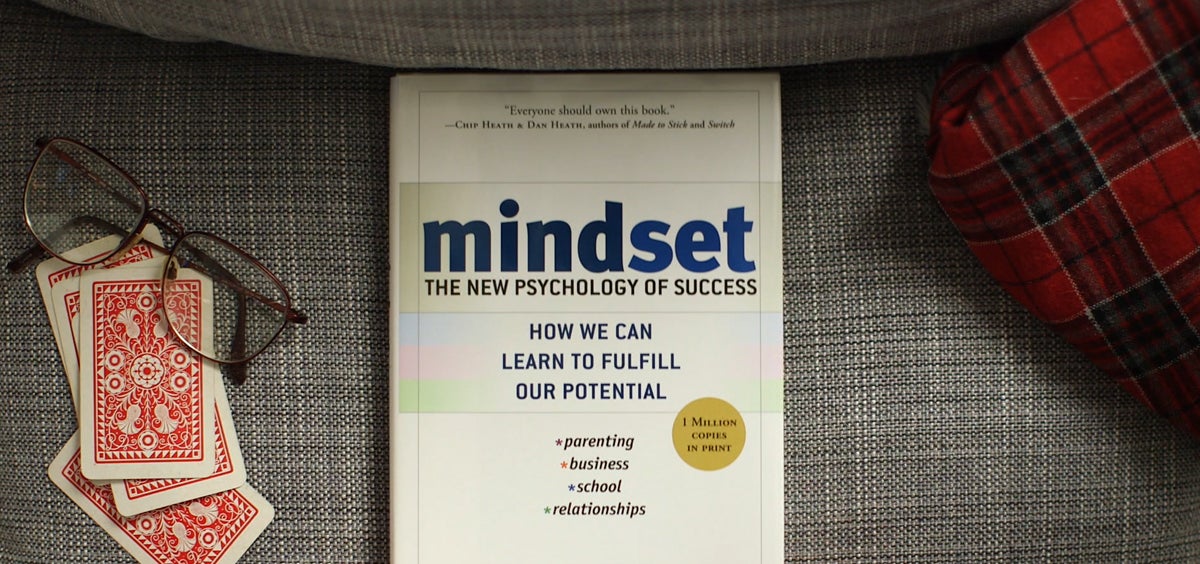
Even as my glasses have gotten smaller and hopefully cooler over the years, I am still a proud member of Nerd Nation. As such, I read a lot of books—usually more than 50 a year. Many of the books I review on Gates Notes are recent releases, because I figure people are generally more interested in hearing about newer works. But I also like to revisit older books that feel especially important or relevant. Mindset: The New Psychology of Success (2006), by the Stanford psychologist Dr. Carol Dweck, is one of those books.
Mindset first came to my attention a few years ago in a fascinating invention session on education with my friend Nathan Myhrvold, similar to the sessions Malcolm Gladwell described in his article “ In the Air: Who says big ideas are rare? ” Dweck’s research had a big impact on our thinking that day. And in the years since, Dweck and her research have helped my foundation colleagues and me understand more about the attitudes and habits that allow some students to persevere in school despite big challenges.
Here is Dweck’s thesis: Our genes influence our intelligence and talents, but these qualities are not fixed at birth. If you mistakenly believe that your capabilities derive from DNA and destiny, rather than practice and perseverance, then you operate with what Dweck calls a “fixed mindset” rather than a “growth mindset.” Our parents and teachers exert a big influence on which mindset we adopt—and that mindset, in turn, has a profound impact on how we learn and which paths we take in life.
In experiment after experiment, Dweck has shown that the fixed mindset is a huge psychological roadblock—regardless of whether you feel you were blessed with talent or not. If you have the fixed mindset and believe you were blessed with raw talent, you tend to spend a lot of time trying to validate your “gift” rather than cultivating it. To protect your self-identity as someone who’s super smart or gifted, you often steer clear of tough challenges that might jeopardize that identity. Here’s how Dweck puts it: “From the point of view of the fixed mindset, effort is only for people with deficiencies…. If you’re considered a genius, a talent, or a natural—then you have a lot to lose. Effort can reduce you.”
If you have the fixed mindset and believe you lost the genetic lottery, you also have little incentive to work hard. Why bother putting in a lot of effort to learn a difficult concept if you’ve convinced yourself that you’re lousy at it and nothing is going to alter that basic equation? When I was visiting with community college students in Arizona, one young man said to me, “I’m one of the people who’s not good at math.” It kills me when I hear that kind of thing. I think about how different things might have been if he had been told consistently “you’re very capable of learning this stuff.”
In contrast, people with the growth mindset believe that basic qualities, including intelligence, can be strengthened like muscles. It’s not that they believe that anyone can become the next Albert Einstein or Michael Jordan if they just work hard enough on their physics homework or fadeaway jumpers. Instead, in Dweck’s words “they believe a person’s true potential is unknown (and unknowable); that it’s impossible to foresee what can be accomplished with years of passion, toil, and training.” As a result, they have every incentive to take on tough challenges and seek out opportunities to improve.
One of the reasons I loved Mindset is because it’s solutions-oriented. In the book’s final chapter, Dweck describes the workshop she and her colleagues have developed to shift students from a fixed to a growth mindset. These workshops demonstrate that “just learning about the growth mindset can cause a big shift in the way people think about themselves and their lives.”
My only criticism of the book is that Dweck slightly oversimplifies for her general audience. Contrary to the impression that Dweck creates here (but probably not in her academic papers), most of us are not purely fixed-mindset people or growth-mindset people. We’re both. When I was reading the book, I realized that I have approached some things with a growth mindset (like bridge) while other things in a fixed mindset (like basketball).
The greatest virtue of the book is that you can’t help but ask yourself things like, “Which areas have I always looked at through a fixed-mindset lens?” and “In what ways am I sending the wrong message to my children about mindset and effort?” Thanks to Dweck’s skillful coaching, you’re almost guaranteed to approach these tough questions with a growth mindset.

Hannah Ritchie’s Not the End of the World is an essential antidote to environmental doomsday-ism.

The Song of the Cell proves that Siddhartha Mukherjee is one of the best science writers working today.
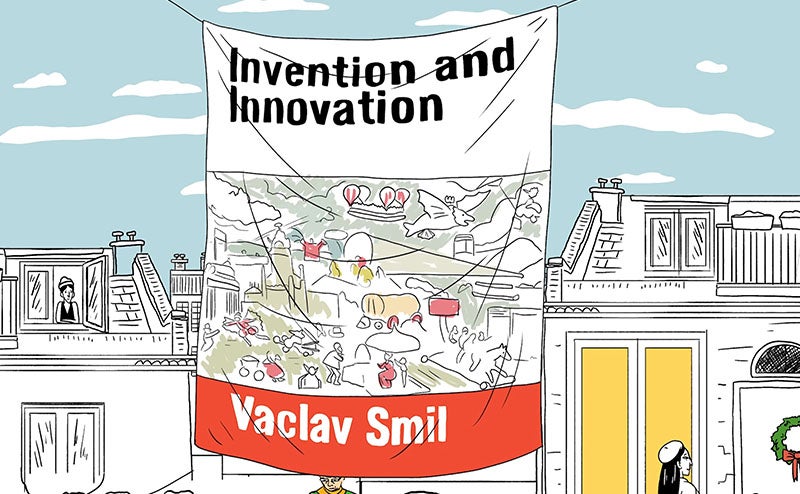
Vaclav Smil has written “a brief history of hype and failure."

Some favorites from 2023, including a new playlist.
This is my personal blog, where I share about the people I meet, the books I'm reading, and what I'm learning. I hope that you'll join the conversation.

Q. How do I create a Gates Notes account?
A. there are three ways you can create a gates notes account:.
- Sign up with Facebook. We’ll never post to your Facebook account without your permission.
- Sign up with Twitter. We’ll never post to your Twitter account without your permission.
- Sign up with your email. Enter your email address during sign up. We’ll email you a link for verification.
Q. Will you ever post to my Facebook or Twitter accounts without my permission?
A. no, never., q. how do i sign up to receive email communications from my gates notes account, a. in account settings, click the toggle switch next to “send me updates from bill gates.”, q. how will you use the interests i select in account settings, a. we will use them to choose the suggested reads that appear on your profile page..

Mindset: The New Psychology of Success, Carol S. Dweck Book Review

Carol S. Dweck describes in her “Mindset: The New Psychology of Success” how the thoughts of our abilities can influence success. According to Dweck , people who think they have limited capabilities cannot succeed. On the other hand, those who believe there is no limitation to their abilities can excel in their life. This is one of the best books on discipline and self-growth.
Mindset: The New Psychology of Success Chapter Summaries:

On the contrary, those who believe that their skills are sharpened and strengthened by practicing are said to have a “growth mindset.” These two types of mindset play a significant role in developing our personal and professional lives.
Meanwhile, people having a growth mindset can change their fate or strengthen their qualities. According to Dweck, this person works hard to achieve their true potential. And they also get the inspiration to face tough challenges and seek better opportunities. They do not give up easily; they learn from their mistakes. They take advantage of this opportunity to learn new things. They practice again and again and try new ways of overcoming their problems.
What do famous people follow?
Famous people like Albert Einstein, Thomas Alva Edison, Isaac Newton, etc., did not get to the position overnight where they are now. Reaching their goal took them a long time and a massive effort. And all this was possible because they had a growth mindset. They failed again and again, but they never gave up. Instead, they learned from their mistake and climbed the ladder of success.
After that, they took this opportunity to try solving their problems differently. Thus, they got to learn different learning methods and apply the techniques.
Our parents and teachers play a huge role in molding our mindset. Whatever they teach us develops us to have either a fixed or a growth mindset.
This book contains some workshops designed by Dweck and her colleagues. These workshops will help students shift from a fixed to a growth mindset because only a growth mindset can help individuals reach their goals and make their lives successful. Therefore, “Mindset: The New Psychology of Success” is an appropriate book for success by knowing the human brain activities.
Most important message from the “Mindset: The New Psychology of Success” book
1. how to describe a growth mindset instead of a fixed mindset.
Fixed mindset: People with a fixed mindset believe their biological traits control their talents and abilities. They do not try to improve their intelligence; instead, of blaming their destiny for being what they are.
Growth mindset: People having a growth mindset think out of the box. They believe that they can sharpen and strengthen their talents by working hard. They believe that these qualities can be developed through experiences and practice.
2. What does Dweck’s mindset theory suggest?
In “Mindset: The New Psychology of Success,” Carol S. Dweck explains how our mindset influences success. Dweck’s mindset theory suggests that beliefs can change how individuals behave and act. According to her, people who think their limited abilities cannot proceed much further. In other words, they are said to have a fixed mindset. On the other hand, people who have a growth mindset, i.e., believe that their abilities have no limitations, can improve their life by working hard.
Dweck developed some workshops along with her colleagues based on this mindset theory. These workshops will help students turn their fixed mindset into a growth mindset through efforts and facing challenges.
3. How does mindset affect others?
Mindset is nothing but the way we think about everything. People having a fixed mindset are easily discouraged when they face any obstacles. They give up and show interest in anything. On the contrary, people with a growth mindset try to overcome obstacles and reach their goals simultaneously. The effects of mindset can be explained through the hare and tortoise fable.
The hare was sure that he would be the one to win. So, he took some rest and slept during the race. Meanwhile, the tortoise kept running at its slow and steady pace, not knowing what would happen in the future. When the hare woke, he found that the tortoise had already crossed the finish line and won the race.
The hare had a fixed mindset, believing his instinctive abilities would always help him win. On the other hand, the tortoise had a growth mindset. He thought he would win the race if he worked hard and kept running.
4. Who are the famous people with a growth mindset?
A growth mindset believes individuals can strengthen their talents by working hard and accepting challenges. Some of the famous people who possess a growth mindset are –
Katy Perry:
Katy Perry is an American singer, songwriter, and television reality show judge. As a teenager, she used to sing in the church. Her family had to depend on church food to survive. She had been very unsuccessful at the beginning of her life as a singer. But she did not lose hope and worked hard. And now she is one of the Forbes “top-earning women” worldwide.
J. K. Rowling:
J. K. Rowling is well-known for her Harry Potter series. But she did not get into this position overnight. She faced so many rejections from different authors; she had been rejected from Oxford University. At a time, she lost her mother to Multiple Sclerosis; her marriage was also a failure. Yet, she had overcome all these problems to reach where she is today. And this all happened because of her growth mindset.
Michael Phelps:
Michael Phelps is the youngest male swimmer in the Olympics. He holds the world record for most medal wins. But he had to overcome so many problems in his life to get here. His parents divorced when he was nine. This left a significant impact on his mental health. He had to struggle with ADHD and depression for a long time. He even had the thoughts of ending his life. But he chose not to give up; all this was possible because he had a growth mindset.
5. How does the brain play into the mindset?
The human brain is made up of millions of cells called neurons. These neurons are connected and receive information or stimulus from the rest of the body. These neurons affect how the brain works by strength, number, and location. Whenever we gain some new experiences, the link or connections in the neurons change. As a result, new connections are formed by altering the neurons. This helps the brain grow smarter and develop a new mindset, and in this way, a new mindset is developed.
6. How do students with a growth mindset see their mistakes?
Students having a growth mindset take the opportunity to learn from their mistakes. As a result, they do not give up at all when they fail. Instead, they repeatedly practice to make things better and learn different ways in the process.
Those who do not have a growth mindset take everything negatively whenever they face any failure. They lose hope every time there is an obstacle in front of them. But those with a growth mindset take up new challenges when they fail. They learn from their mistakes and try to overcome obstacles. They see mistakes as opportunities to do something better.
7. What are the growth mindset principles in the new psychology of success?
According to researchers, some of the growth mindset principles are –
- Acknowledge your mistakes: We must embrace our imperfections and learn from our mistakes.
- Take advantage of your challenges: Whenever you face any challenge, take the opportunity to learn new things to get over your problems.
- Different learning methods: Find all the possible solutions to your problem and try to apply the solutions in different ways.
- Don’t get discouraged: Your learning will always be different from others. So do not get discouraged easily if someone says you are learning it incorrectly.
- Do not emphasize the result: Give more importance to what you learn. The result can be a one-time thing, but what you learn will stay forever.
- Never give up: No matter how hard it is to reach your goal, never lose hope. Just keep on working on your goals.
8. Ingrained vs. engrained
Ingrained and engrained are almost the same in meaning. Here, Ingrained means impressed by something more profoundly or permanently. A point of view or perception might be ingrained according to personal thinking. For example, as he has Parana thinking, we may make a few ingrained pieces of evidence to help him know the real matters.
Engrained is an alternative spelling of ingrained, which is rarely used and recognized. So, it is better to use ingrained rather than engrained.
9. Growth vs. development
Growth is a physical change that occurs in the individual body. On the other hand, development is the total growth of humans that happens throughout the whole life span. The development includes social, physical, emotional, intellectual, and other essential aspects of human life.
A growth mindset indicates: People believe their basic abilities can be increased through dedication and hard work. Therefore, the brain and intelligence are the critical starting point of a growth mindset- (Dweck, 2015).
A development mindset indicates: This is a way of thinking and searching the world, spreading the facilities for ongoing personal and social transformations- (Dweck, 2015).
10. How does the brain play into the mindset?
The brain is an integral part of the human mindset. Various paths in our brains change at different times. The brain is continually creating and destroying neural pathways. These neural paths help to choose decisions or help to make actions. Sometimes these pathways create a blog that causes various emotional and cognitive imbalances. We can ensure our well-being by creating a positive mindset with proper caring for our minds.
11. Mindset vs. mentality
My mindset defines what I am going to do. It can also be termed a cognitive map or preoperational mentality of performing any task. The mentality is a whole process of mindset. Our negative mentality can make hindrance in our mindset. At the same time, a positive mentality can create the right mindset.
12. How to change mindset and behavior?
Mindset and behavior occur one after another. As we mentioned before, mindset is a preoperational period of doing any action. Behavior can be an action or response to mindset. For example, we are going to make a company. So first, we will make a perfect plan for our next program to succeed. The ideal plan is a mindset, and all other activities are behavior.
Our following behavior/actions will depend on our ways of mindset. Our behavior will change fruitfully if we can make an appropriate mindset through proper research such as problem-solving strategies , SWOT analysis, etc. Successful behavior depends on a successful mindset. “Mindset: The New Psychology of Success” is a practical book for everyone who wants to continue their lifetime success.
You may also like:
- 10 Popular books can teach yourself discipline
- Best Self-Help Books for Depression
- Psychology Books of All Time
- Best Audible Books of All Time:
- Best Psychology Books on Human Behavior
Last update on 2024-04-18 / Affiliate links / Images from Amazon Product Advertising API
Leave a Comment Cancel Reply
Your email address will not be published. Required fields are marked *
This site uses Akismet to reduce spam. Learn how your comment data is processed .

Mindset By Carol Dweck: Book Summary/Review
21 February 2021
Did you know that students with a growth mindset are more than 2x more likely to score in the top 20%?
According to research done on 10th graders, students who tested positive for the growth mindset were much more likely to achieve high scores.
Students with the fixed mindset, however, were almost 3x more likely to score in the bottom 20%.
In this review I will give you:
- Overall review of Mindset by Carol Dweck and whether YOU should read it.
- Chapter-by-chapter summaries and actionable takeaways
- Actionable steps that you can take right now to improve your mindset.
Disclaimer: This post contains amazon affiliate links for the book Mindset by Carol Dweck . All purchases will go to supporting Chris Dismissed, thank you!
Table of Contents
Overall review of mindset, chapter summaries, actionable steps.
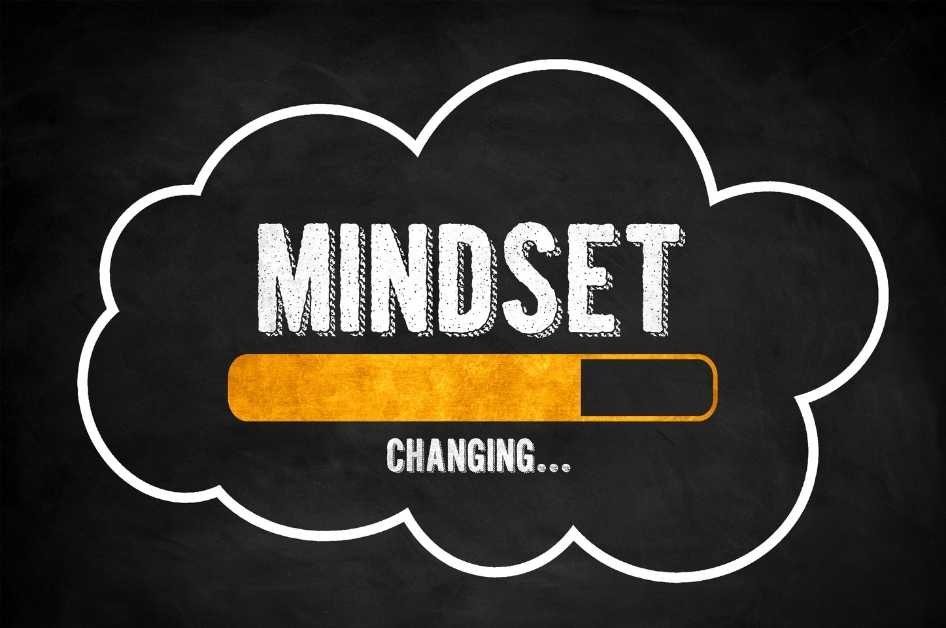
Mindset Definitions
Before we dig into Mindset and the contrasting elements of the two main mindsets, we need to define the differences between them.
What is a Fixed Mindset?
The fixed mindset is a psychological perspective that views people, objects, and qualities as fixed, immovable, and unchangeable.
What is a Growth Mindset?
The growth mindset is a state of being that assumes that all qualities, people, and natures are malleable, changeable, and capable of growth.
Those with growth mindsets do not simply focus on achievements (although they are important metrics) but are focused on growth in any given situation.
Should You Read Mindset By Carol Dweck?
Chris Dismissed Rating: 8.5/10
Overview: Solid book on the impact that a fixed and growth mindset can have on learning, success, and quality of life. This book is very focused on mindset and stays true to its title. Read Mindset if you want to change your mental approach to life.
Who Should Read Mindset?
Any hungry student, professional, or other person looking to grow in the understanding of themselves and people around them should read Mindset . This book is fundamental knowledge for anyone studying psychology, personal development, meta-learning, or entrepreneurship.
- Lots of original research.
- Stay focused on the core subject of the book: Mindsets.
- Gives great definitions for the mindsets and backs those claims up substantially.
- Provides excellent examples that anyone can relate to.
- Clear evidence makes the book very easy to understand.
Who Should NOT Read Mindset?
Anyone convinced that people are unchangeable and that talent is born should skip out on reading Mindset . The research in this book will likely conflict with your worldview and provide little benefit.
- Not a short read.
- More research is needed in this field to understand mindset benefits truly.
Top 3 Points From Mindset
1. There are two primary mindsets, the fixed mindset, and the growth mindset.
2. Mindsets are key to how we view the world and how we behave in our day-to-day lives. Mindsets are also key to happiness.
3. By adopting a growth mindset in all areas of your life you can approach change in a healthy way and continue to grow.
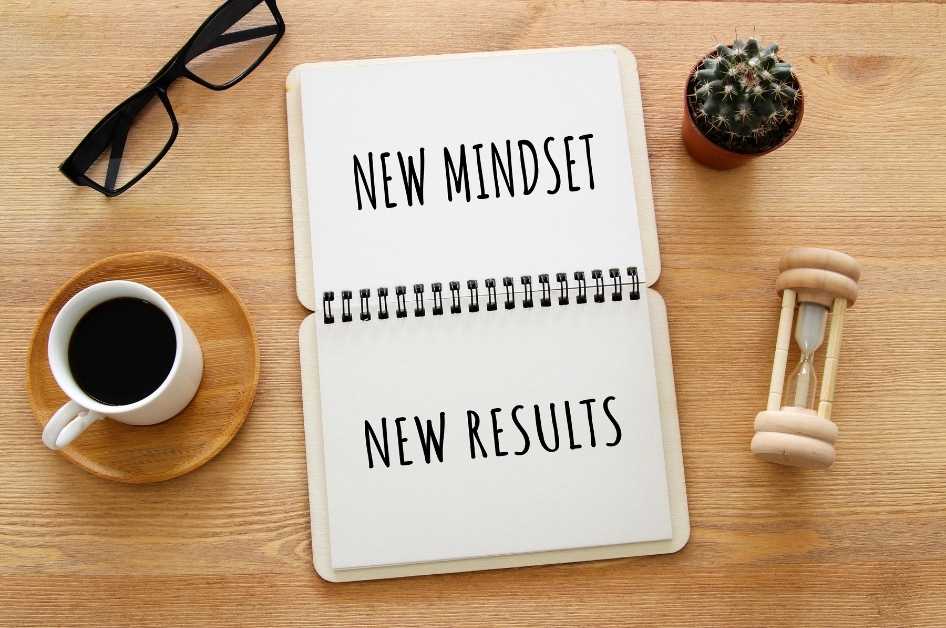
Chapter 1: The Mindsets
Carol Dweck begins her book by investigating what a mindset is in the first place.
Contrary to popular belief, Alfred Binet’s IQ test was built to monitor people’s growth and development, not their static intelligence.
Mindset is actually central to personality. Most people think that their personalities are set in stone, but personality is something that can be learned and develop.
There are two primary mindsets: the fixed mindset and the growth mindset. Here are some characteristics of each of them…
Fixed Mindset:
- Character traits are set in stone.
- I am who I am and that’s that. I can’t change.
- People’s IQ is fully descriptive and tells their full story.
- One thing defines me (my money, my grades, my relationship status) and that stays the same.
Growth Mindset:
- Everyone can change and grow at any time.
- I am who I am, but I can be more than I am right now.
- People’s IQ scores are a measurement but are not indicative of a person’s true value.
- I get to define who I am!
Most of the time we have no idea how much we are truly capable of. One key to unlocking this is reorienting your mindset.
People with a growth mindset think about action. They think about how they can improve themselves and confront challenges boldly.
Remember, just because you can’t do it right now doesn’t mean that you can’t grow into doing it.
Chapter 1 Key Takeaways:
- There is a large difference between a fixed and growth mindset.
- IQ and other intelligence indicators (grades, financials, followers, etc.) are important metrics but do not tell the full story.
- You can change your mindset right now.
Analysis and Application:
For this chapter, start by answering the following questions.
- Is my intelligence unchanging?
- Can I learn new things and change my intelligence?
- Can I always change it?
- Can I substantially change myself?
Related: So Good They Can’t Ignore You: Book Review

Chapter 2: Inside the Mindsets
Changing your mindset can change who you are fundamentally.
Perception is an active part of your psychology and of your life as a whole.
As Charles R. Swindoll eloquently stated in The Grace Awakening , “I am convinced that life is 10% what happens to me and 90% how I react to it.”
Do you think that success is about learning, or proving that you’re smarter than those around you?
In a study done by professors at the Hong Kong University , students who tested positive for the growth mindset leaped at the chance to learn and stretch beyond what is currently possible.
People with a fixed mindset thrive on doing well right away. They focus on the sure thing and the harder something is the worse they feel.
Furthermore, changing perspectives on potential is central to growth. Those with fixed mindsets often try to prove they’re “special”, “different”, “superior”, and “entitled”.
If you want to develop a growth mindset, humble yourself. Special should never mean BETTER than others. It does not mean that you are above anyone else.
Another great indicator of mindset is the way that a person deals with failure or failing grades.
Those who believe that failure is necessary and critical to growth are more likely to grow from their failures and mature from them.
People that believe that success is a zero-sum game , (that one person’s success will cause another person’s failure) will always be limited by their mindset.
Chapter 2 Key Takeaways:
- Your mindset dictates your life perception and happiness.
- Failure is necessary for growth.
- People with fixed mindsets often feel inferior or superior to others.
Analysis and Application
In chapter 2, Dweck digs deeper into the mystery of mindsets.
If you want to uncover your current mindset and what you can do to improve it, ask yourself the following questions:
- Does my success mean someone else’s failure?
- Would I rather take a big risk and fail or play the safe road but risk regret?
- Am I living my life in social comparison to those around me?
In order to change your mindset, you need to analyze your current mindset. Record your answers to these questions in a document.
Related: How to Set Goals (Step-by-Step Guide)
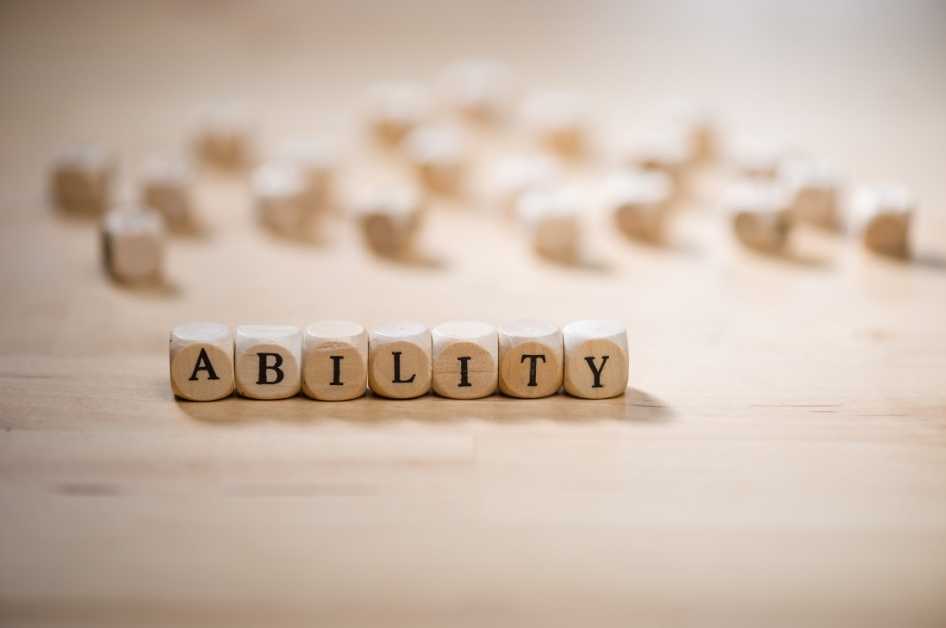
Chapter 3: The Truth About Ability and Accomplishment
While it may be true that every person has unique strengths and abilities, your potential is largely reliant on your mindset.
Mindset , and the actions that you take due to a certain mindset, are key to understanding genius and accomplishments.
Thomas Edison, Charles Darwin, and Wolfgang Amadeus Mozart were not born as historically influential figures. Their work took decades before showing fruit.
In fact, Mozart was impoverished in his own lifetime!
People with a fixed mindset blame their failure on themselves and others instead of taking their lives into their own hands.
In addition, they believe that the goal of life is to put in as little effort as possible and still have the highest result.
Carol Dweck centers her research on the beliefs that students have about their abilities and potential.
One of her most groundbreaking findings is that positive praise can be potentially dangerous.
Statements about a person’s abilities (especially during developmental years) can prime a person for the fixed mindset or the growth mindset.
Dweck reminds us to praise people for their effort and their growth instead of their talent.
Studies in Mindset research showed that praising ability lowered IQ while praising effort eventually raised it.
However, modern education systems have threatened this growth by labeling some classes as “gifted” and others as simply “normal”. This separation has led to the deterioration in childhood growth.
On the other hand, all negative labels and stereotypes are bad. But a person with a growth mindset will take the sharpness out of negative labels.
Shifting your perspective on ability and accomplishment is a key element of developing the growth mindset and raising your potential.
Chapter 3 Key Takeaways:
- Abilities and accomplishments are achieved through work and growth.
- Even the most revered people in history needed to grow.
- Positive labels can be dangerous but negative ones do not need to be harmful.
It’s time to audit your mindset. Which of the following statements do you agree with and why?
- It’s better to work little and to achieve a lot than to grow and learn from mistakes.
- I would rather be praised for my accomplishments than my efforts.
- I care and trust what people think, even if I wouldn’t take life advice from those people.
- Success is something that should come easy to me if I’m gifted.
If you agree with any of these statements there’s a chance that some elements of your life currently exhibit the fixed mindset.
Related: How to Build Atomic Habits As A College Student (11 Crucial Tips)

Chapter 4: Sports-The Mindset of a Champion
Sports and athletics is an area where the fixed mindset runs rampant.
Nevertheless, the greatest sports legends are those that had the mindset of a champion: the growth mindset.
Many people believe that natural athleticism is the only factor in sports performance. There is a resounding notion that natural ability trumps all.
And yet, some of the greatest champions (Ali, Michael Jordan, and Babe Ruth to name a few), all agreed that their greatness came from growth.
Naturals shouldn’t need effort, right?
Ability can help you get to the top of your game but character and mindset are what keeps you there.
As Rocky said: It’s not about how hard you can hit, it’s about how hard you can get hit and keep going.
Chapter 4 Key Takeaways:
- Natural talent is relevant in sports but is not the most crucial factor of success.
- Born athletes become winners, growing athletes become champions.
- Train hard in everything you do, measure progress on growth not achievement.
Developing the mindset of a champion isn’t easy. But asking yourself key questions can help you understand whether or not you have the mindset of a champion:
- Do I believe that all talents are naturally acquired?
- What does it mean to be successful?
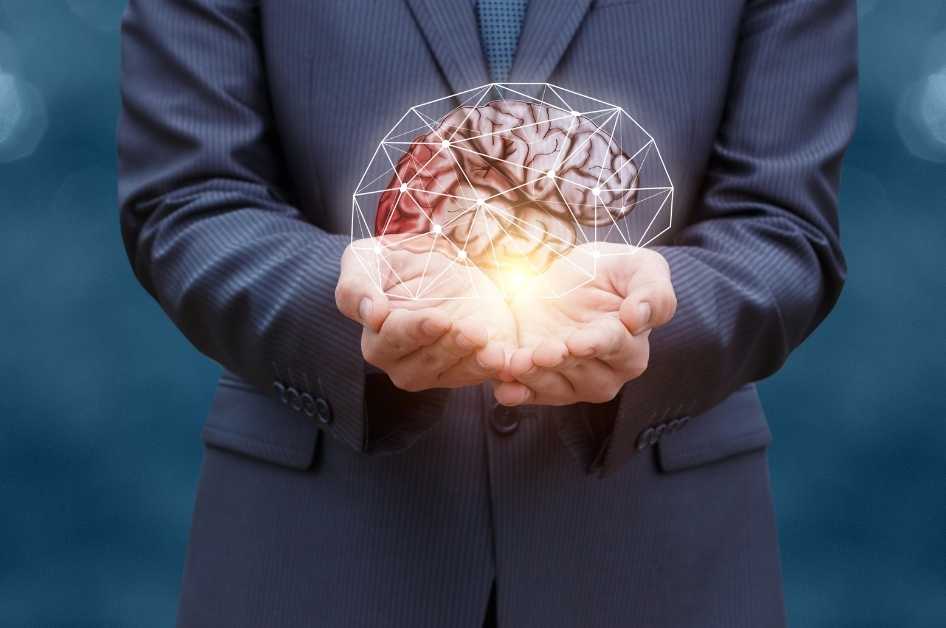
Chapter 5: Business-Mindset and Leadership
Perhaps the most recognized aspect of life that utilizes the word “mindset” is business.
Unlike online business mentors and gurus, Dweck isn’t trying to sell you on why you should buy her course. Instead, she unravels the mystery of business mindsets in this chapter.
Businesses that grow are those that build to improve. Executives that highlight their star qualities instead of building on growth undoubtedly crumble.
Bad leaders will put down those around them and lead their company to a negative work environment.
In Mindset , several of these fixed leaders are analyzed including Lee Iacocca, Albert Dunlap, Kenneth Lay, and Jeffrey Skilling.
These executives viewed themselves as invulnerable, invincible, and entitled. Their pride crushed both them and their employees.
In contrast, growth mindset leaders (Jake Welsh, Lou Gerstner, Anne Mulcahy), put their time and energy into the nitty-gritty of the business.
Growth mindset leaders constantly erased the hierarchy between executive and employee. They seek to discover, learn, optimize and grow.
These business leaders promote teamwork to get the job done and dedicate themselves to the lives of their employees.
Dweck makes a clear statement that leaders, managers, and negotiators are not born, they’re developed through work, perseverance, and growth.
Chapter 5 Key Takeaways:
- Business success isn’t born, it’s made.
- Executives with a growth mindset focus on their employees, not their own success.
- Teamwork and leading groups through the growth mindset are crucial for long-term success.
If you’re interested in business, you know how crucial it is to develop growth in a company. Whether it’s growth in profits, assets, or impact, business growth starts with the growth mindset.
Here are some pivotal questions you can ask yourself to develop the growth mindset:
- Is business success inherent or does it come from growth?
- Am I pursuing business to be the head of a company and gain fame and fortune or to grow with those around me?
Related: 10 Best Books I’ve Read This Year As A College Digital Marketing Student

Chapter 6: Relationship-Mindsets in Love (or Not)
Revenge is the number one indicator of a fixed mindset both in a relationship and post-relationship.
Most people will skip the chance to learn from their mistakes in a relationship and immediately move toward plotting their course of revenge after a relationship.
In addition, individuals with fixed mindsets feel that relationships aren’t something that should be worked on, they should come naturally.
Mindsets are relevant, even in your love life.
Take former President Bill Clinton’s relationship with his wife Hillary Clinton for example. How did they save their marriage after the Monica Lewinsky scandal?
Aside from years of therapy and counseling, the couple needed to acquire the growth mindset and blame the problem instead of blaming each other.

Chapter 7: Parents, Teachers, and Coaches-Where do Mindsets Come from?
The most fundamental place for the development of mindsets happens in the classroom.
In school every word and action a teacher makes sends a message: fixed or growth?
Modern classrooms push that each child should be told that they’re special and somehow more “gifted” than other children.
But this attitude solidifies the fixed mindset in these children’s minds.
Instead of reassuring children about how great they are, what if we encouraged them by praising their effort and development?
Mindset is crucial to the learning process, the wrong mindset can stunt growth and cause frustration.
In Dweck’s studies, fixed mindset students felt judged by constructive feedback whereas growth mindset students felt inspired by constructive feedback.
Most students just want to hear their teachers, coaches, and mentors tell them that they’re “talented” and “different. That they’re fundamentally different from the rest.
But what message does that send to the student? What does that student do when they are faced with a challenge more difficult than they’ve ever faced before?
They give up.
If you want to become the best future parent, teacher, or mentor, you need to learn to teach the growth mindset.
Trust the process of learning, believe in the growth of intellect, and give disciplined nurturance to those around you.
You don’t have to be an official teacher either. You can extend your growth mindset to your friends, family, and loved ones.
Remember, success in learning can be more damaging than failure. Success can weaken your future, failure gives you an opportunity to grow
Chapter 7 Key Takeaways:
- Be careful and cautious when you give out praise. Your praise matters!
- Adopting the growth mindset can help those around you and can inspire those who feel stuck.
- Encourage based on the merit of effort, not on innate talent.
To take advantage of the principles discussed in this chapter, ask yourself the following questions:
- Do I praise process or talent?
- What’s the message that I send with my praise?
- Would I rather hear someone say, “you’re gifted” or “you’ve put in incredible work”?
- How did I react to the last person who gave me constructive criticism?
Related: How To Show Your Work According to Austin Kleon
Chapter 8: Changing Mindsets
Now you’re officially ready to change your mindset.
As you’ve realized by now, change is growth and your beliefs are key to that growth.
It’s time to observe, learn, and improve your mindset through a step-by-step process.
Mindset is a choice. The brain is like a muscle, you need to challenge it to learn stronger and smarter through small, daily actions.
Carol Dweck calls us to open ourselves up for growth by acquiring the growth mindset, minimizing cognitive dissonance, and giving an honest plea for helpful feedback.
If you’ve recognized that you have a fixed mindset in certain areas of your life (health, finances, relationships, careers, learning, etc.) you’ve already taken the first step.
Here’s what to do from here:
- Embrace your fixed mindset
- Be aware of fixed mindset triggers
- Give your fixed-mindset a name
- Educate the fixed mindset persona and take it with you
Chapter 8 Key Takeaways:
- You can change your mindset starting right now.
- Your mind is a muscle.
- Start by embracing your fixed mindset then realign yourself to a growth mindset and finally take small actions towards reinforcing your new mindset.
Hope you enjoyed this summary and review of Mindset by Carol Dweck.
Please leave a comment below with your favorite points from the book and make sure you grab your PDF copy of this article (with the Mindset checklist) here!
Class Dismissed,
- Books & Workbooks
- Free Courses
- Free Membership
- The Nomadic Scholar
- Persuasion Mastery
- Behavioural Mastery
- Testemonials
- Free Connection Call

- 30th October 2018
- 12 minute(s) read
Three Lessons I Learned From Carol Dweck’s “Mindset” {Book Review}
Carol Dweck is one of the world leading researchers in the fields of personality, social psychology, and developmental psychology. Professor Dweck explains why it’s not only our abilities and talent that bring us success, but also how we approach our goals. She decided between two different mindsets: a growth mindset and a fixed mindset.
This week in my book club, I reviewed Carol Dweck’s Mindset. You might have heard of this gem; it is the favourite psychology book of Bill Gates.
I stumbled over this book when I was listening to a Josh Waitzkin Interview , where he recommended this book.
Who Is Carol Dweck
Carol Dweck is one of the world-leading researchers in the fields of personality, social psychology, and developmental psychology. She is currently a Professor of Psychology at Stanford University and a member of the American Academy of Arts and Sciences. Her book Self-Theories: Their Role in Motivation, Personality, and Development was named Book of the Year by the World Education Fellowship.
Her publications have been featured in the New Yorker, Time, New York Times, Washington Post, Boston Globe, and many more. She currently lives in Palo Alto, California.
So jab, it is fair to say that she is a total badass.
I sincerely hope that I will get Professor Dweck on my Podcast in the next few months.
What Is The Book Mindset About?
Professor Dweck explains that it is not only our abilities and talent that bring us success, but also how we approach our goals.
She identified two different mindsets: a growth mindset and a fixed mindset .
According to her, these are the most basic beliefs that we carry with ourselves.
A “fixed mindset” is a belief that assumes that our talent, character, intelligence, and creativity are fixed entities that cannot be changed in any meaningful way.
Therefore, success is only the product of what you were given at birth.
This is a toxic belief.
People who have a “fixed mindset” shy away from challenges because they fear failure more than anything.
A person who has a “fixed mindset”, who would pass an exam would link their success to them just being smart and talented.
There is a dangerous problem with this belief: What happens if a person with a “fixed mindset” fails?
The problem is that their entire self-identity is bound to their results.
If you have a “fixed mindset” and you are succeeding, you feel smart and gifted; if you are failing, however, you feel stupid and untalented.
The danger of the “fixed mindset” is due to you linking your entire self-identity to your performance or to your results.
This is why a person with a “fixed mindset” will shy away from taking on challenges because they fear failure more than anything.
If you believe, on the contrary, that hard work, perseverance, the right strategy, and resource management have much more to do with what is possible for you, then Professor Dweck would say you have a “ growth mindset” .
A “growth mindset” thrives on challenge, and sees failure, not as evidence that you have no talent whatsoever, but as an opportunity for growth.

A big part of our educational system is built on the belief, for example, that intelligence is a fixed entity. This book washes the floor with this unfounded statement. So, if you are reading this, you are not a static being! You can decide who you want to be .
The idea that people are predestined to achieve according to their IQ and their inherent capabilities is outdated.
Another detriment of the fixed mindset is that it makes people who have it, believe they were blessed in some areas with talent and that in those areas, they are naturals and they do not have to work on their craft anymore.
A person with a fixed mindset believes that it is futile to invest in areas of their life where they are naturally not talented.
They think that effort and hard work is for people with deficiencies. Untalented people.
This can trigger an entire domino effect of psychological catastrophes because if you define yourself by your talents, a loss means that you are nothing .
This reminded me of a lot of what I learned in clinical psychology about people with narcissistic personality disorders. If you believe you are this great guy, and you fail, your entire self-image crumbles. This causes depression, and in some people, even suicide.
One thing that I learned from my last book review “ The Art of Learning ” by Josh Waitzkin was that failure and mistakes are a necessity.
Only through failing can you identify your weaknesses and get stronger. Many high achievers even celebrate failing. I heard Dave Asprey, founder of bulletproof , in one of his interviews say that he asks his kids every day if they failed today, and if they say no, he motivates them to shoot higher the next day.
What is even more dangerous, are people who have a fixed mindset, but who do not believe they are particularly talented. This is the worst combo, in my opinion.
If you think you lost the genetic lottery, and you have a fixed mindset, you have no motivation to work hard. You think success is just not for you. That the good things in life are not available for you. I spotted this pattern a lot when I investigated people who were going through a depressive episode.
If you believe that life has only pain, suffering, and a whole bunch of horse crap in store for you, why even bother and try?
Why bother putting in lots of work to turn things around, if the ultimate outcome will be that you will be failing anyway?
Better save the energy and do nothing right? WRONG!
A smart, beautiful girl very recently approached me, and after some chit-chat, she shared with me that it was her dream to study psychology also, but that she believes that she is too stupid for university.
This conversation stuck with me for quite some while, because it killed me that she had such a distorted perspective of what is possible for her.
But also, I understood where she was coming from. It is only logical to assume that if you fail every time you start something, that after some time, you are better off stopping to try in order to stop hurting yourself. Everything else would be self-mutilation. Carol Dweck’s book Mindset, showed me that I am not the sum of all my mistakes, and that change is not only possible, but it is necessary.
The idea that intelligence is a fixed construct is just plain wrong. Intelligence and basic qualities can be strengthened and trained like muscles. I am not saying that everyone can be a Lebron James or Albert Einstein, but our brain is capable of enormous feats.
And, when you hear people, for example, say, I am too old to learn a new language, math is just not for me, or I am just not a this or that person, please remind them with a gentle slap in their face, that they are limiting themselves.

3 Lessons I Learned Mindset
Intelligence is not fixed.
At the beginning of Mindset, Professor Dweck kills the myth that intelligence is a static entity that cannot be changed. She takes a closer look at the work of Alfred Binet, the creator of the IQ test.
Alfred Binet designed the IQ test to help children who fell behind to get back on track. Let that sink in: The founder of the IQ test did not believe that intelligence was fixed.
A few modern philosophers… assert that an individual`s intelligence is a fixed quantity, a quantity which cannot be increased. We must protest and react against this brutal pessimism…. With practise, training, and above all, method we manage to increase our attention, our memory, our judgement and literally to become more intelligent than we were before”. Alfred Binet
I have met friends where their teacher put the kids with the highest IQ score in the front row because obviously, those were the only ones that would ever amount to anything. So why bother investing in the other “untalented” ones.
In the following quote, Professor Dweck writes about what she found out in her long research:
For twenty years, my research has shown that the view you adopt for yourself profoundly affects the way you lead your life. It can determine whether you become the person you want to be and whether you accomplish the things you value. How does this happen? How can a simple belief have the power to transform your psychology and, as a result, your life? Believing that your qualities are carved in stone — the fixed mindset — creates an urgency to prove yourself over and over. If you have only a certain amount of intelligence, a certain personality, and a certain moral character — well, then you’d better prove that you have a healthy dose of them. It simply wouldn’t do to look or feel deficient in these most basic characteristics. […] I’ve seen so many people with this one consuming goal of proving themselves — in the classroom, in their careers, and in their relationships. Every situation calls for a confirmation of their intelligence, personality, or character. Every situation is evaluated: Will I succeed or fail? Will I look smart or dumb? Will I be accepted or rejected? Will, I feel like a winner or a loser?.
The Power Of “Not Yet”
Professor Dweck uses a beautiful example where a high school in Chicago hands out the grade “not yet” to students who did not pass an exam.
In that way, students can frame this setback into their “growth mindset”.
Many students who do not pass their exam, internalise that they are a failure, a nothing. Too stupid to pass the exam.
If you try really hard at something and fail, it is key to realise, although you did not pass yet, your work was not for nothing.
When I was studying psychology, I was living in F city.
I failed exams left and right, ultimately, I dropped out, and I took a 2-year break from academia where I travelled the world.
After having not succeeded in my academical career, I felt that I was now officially stupid. Inferior to everybody who had a college degree, and that there was absolutely nothing that I can do about it, and that it will stay like this forever.
In those 2 years, I did not understand that I was on a learning curve, that studying was actually not for nothing, but that I was getting better, that I was growing.
The finality of a loss that is linked to your own lack of abilities is a painful process to go through.
Professor Dweck calls this the “ Tyranny of now “.
To investigate this phenomenon, she did an experiment, where she gave children a task that was too hard for them to solve.
What happened to the children with the “fixed mindset” when confronted with a task too hard for them to solve?
Children with a “fixed mindset” were more likely to cheat and tried to find worse children than they were.
They wanted to feel good about themselves, and avoid challenges and ran from difficulty to not put their self-identity in jeopardy.
Professor Dweck showed me in Mindset that our grades, results, and achievements are not final judgments that estimate the value of a person, but a photograph of a moment in that person’s life.
You can argue that the system that we are living in has a “fixed mindset”. If you graduate, this means you are forever smart. If you have no degree, you are stupid. Our system is built on such assumptions.
Somebody-Nobody Syndrome
Case study: iciss tillis fixed mindset.
“It was in 2004. Iciss Tillis is a college basketball star, a six-foot-five forward for the Duke University women`s basketball team. She has a picture of her father, James ”Quick” Tillis, taped to her locker as a motivator. “But the picture is not a tribute”, says sportswriter Viv Bernstein. “It is a reminder of all Tillis hopes she will never be”.
Quick Tillis was a contender in the 1980s. In ‘81, he boxed for the world heavyweight title; he was in the movie The Colour Purple (as a boxer), and in ‘86, he was the first boxer to go the distance (ten rounds) with Mike Tyson. But he never made it to the top.
Iciss Tillis, who is a senior, says, “This is the year to win a national championship. I just feel like I’d be such a failure . . . I`d feel like I am regressing back and I am going to end up like my dad: a nobody”.
This is my favourite case study from the book Mindset. It shows a psychological catastrophe in sports that many people view as a necessity: the somebody-nobody syndrome.
If I win, I will be somebody.
If I lose, I will be nobody.
Not only in sports is this true, but in life also. So often people have the misconception that their self-worth is determined whether or not they are successful. Constant self-validation is highly dangerous, in my opinion. The classic if-then psychology. If you become successful, then you will finally be happy. As much as I am for aiming high, seeing yourself as a person who is, at the moment, not special enough is highly dangerous. People who have the “one day I’ll be somebody” disease are constantly in repair mode. They internalised that they are broken and that at the moment, they do not have any worth. That they are not enough.
Yes, you seem to need at least a little bit of discomfort to motivate yourself for some things, but other sources get your ass into gear.
You can be driven by inspiration, contribution, and your dream without connecting your self-worth to your progress. If you are reading this right now, you are somebody. You matter, and you are enough, and you always will.
What I Do Not Like About Carol Dweck’s Mindset?
In this book, you will constantly evaluate and question yourself and check whether or not you have a growth mindset or a fixed mindset, and you will realise that we all have mixed mindsets. I think Professor Dweck could have put more psychological exercises in this book. I learn best by doing, and I would love to have a workbook from Professor Dweck with practical exercises for every day that strengthens my growth mindset.
- https://www.gatesnotes.com/Books/Mindset-The-New-Psychology-of-Success
- https://www.brainpickings.org/2014/01/29/carol-dweck-mindset/
Call to Action
Which mindset do you have? Answer these questions about intelligence. Read each statement and decide whether you mostly agree with or disagree with it. (1)
- Your intelligence is something very basic that you cannot change very much.
- You can learn new things, but you cannot really change how intelligent you are.
- No matter how much intelligence you have, you can always change it quite a bit.
- You can always substantially change how intelligent you are.
Questions 1 and 2 are the “fixed mindset” questions. Questions 3 and 4 reflect the “growth mindset”. As always, thank you for reading and go kick ass in life! Write in the comments what the book is that you have recommended the most in the last 12 months!
15 Comments
frolep rotrem
March 22, 2020 at 8:46 pm
Some really choice posts on this web site, saved to bookmarks.
March 31, 2020 at 11:00 pm
I¦ve recently started a website, the info you provide on this website has helped me tremendously. Thank you for all of your time & work.
April 1, 2020 at 2:54 am
What’s Happening i’m new to this, I stumbled upon this I have found It absolutely useful and it has helped me out loads. I hope to contribute & aid other users like its helped me. Great job.
April 18, 2020 at 6:15 pm
Keep up the excellent work, I read few content on this website and I conceive that your blog is rattling interesting and holds bands of wonderful information.
May 19, 2020 at 5:53 pm
Thank you for the auspicious writeup. It in fact was a amusement account it. Look advanced to far added agreeable from you! However, how could we communicate?
May 19, 2020 at 9:12 pm
Thank you so much.
Shoot me a dm on Instagram @daniel__karim
Looking forward to hearing from you
https://buddypress.org
May 20, 2020 at 4:29 am
Heya i am for the primary time here. I came across this board and I to find It truly useful & it helped me out a lot. I am hoping to give one thing back and help others like you helped me.
May 21, 2020 at 5:07 pm
Thank you for sharing this
May 25, 2020 at 3:46 am
Good web site! I really love how it is easy on my eyes and the data are well written. I am wondering how I might be notified whenever a new post has been made. I have subscribed to your feed which must do the trick! Have a great day!
Also visit my website :: exam stress ( Penney )
May 25, 2020 at 1:41 pm
Hey Penney,
The best way to learn about my latest posts is to follow me on Instagram: @thedanielkarim
Also, feel free to send me an email and I will send them to you personally.
Thank you for visiting my blog.
August 30, 2020 at 1:01 am
Keep up the fantastic work, I read few content on this web site and I believe that your blog is real interesting and holds circles of excellent information.
December 6, 2020 at 6:10 pm
You ought to take part in a contest for one of the best blogs on the internet. I most certainly will highly recommend this site!
dogaveturfa.com
December 24, 2020 at 9:14 pm
My brother suggested I would possibly like this website. He was entirely right. This put up actually made my day. You can not consider just how much time I had spent for this info! Thank you!
samatakamping.com
December 28, 2020 at 12:07 am
I believe that is among the such a lot significant info for me. And i am satisfied reading your article. However wanna commentary on few general issues, The site style is perfect, the articles is really excellent : D. Good activity, cheers
alhudasecondary.com
December 28, 2020 at 2:37 pm
It’s fantastic that you are getting thoughts from this post as well as from our dialogue made at this place.
Leave a Reply Cancel reply
Your email address will not be published. Required fields are marked *
Save my name, email, and website in this browser for the next time I comment.
Post Comment
FREE Habit Builder
Get my guide to tap into the power of habit formation for free.

Download the Habit Builder for free

- Terms & Conditions
- Privacy Policy

The New Psychology of Success
Carol S. Dweck | 4.29 | 85,124 ratings and reviews
Ranked #1 in Education , Ranked #1 in Mindset — see more rankings .
Want to learn the key points of "Mindset" in 21 minutes?
Get a full book summary of Mindset by signing up for Shortform .
Shortform summaries help you learn 10x faster by:
- Being 100% comprehensive: you learn the most important points in the book
- Cutting out the fluff: you don't spend your time wondering what the author's point is.
- Interactive exercises: apply the book's ideas to your own life with our educators' guidance.
Reviews and Recommendations
We've comprehensively compiled reviews of Mindset from the world's leading experts.
Tony Robbins Life Coach [Tony Robbins recommended this book on the podcast "The Tim Ferriss Show".] (Source)
Bill Gates CEO/Microsoft One of the reasons I loved Mindset is because it’s solutions-oriented. In the book’s final chapter, Dweck describes the workshop she and her colleagues have developed to shift students from a fixed to a growth mindset. These workshops demonstrate that ‘just learning about the growth mindset can cause a big shift in the way people think about themselves and their lives. (Source)
Dustin Moskovitz Co-founder/Facebook and Asana [Dustin Moskovitz recommended this book on Twitter.] (Source)
Jack Dorsey Co-Founder/Twitter At a January executive retreat, he handed out copies of the book Mindset: The New Psychology of Success, which includes motivational, if vague, lines like “Becoming is better than being.” The right mind-set, according to Mindset, is a “growth mindset.” (Source)
Ev Williams Co-Founder/Twitter, CEO/Medium Recommends this book
Satya Nadella CEO/Microsoft Written by a Stanford psychology professor, this book offers advice on retaining an appreciation for the things you don’t yet know and first resonated with Nadella as a father. As Microsoft’s new CEO, he aspired to steer the company toward “a culture that allowed us to constantly refresh and renew,” and incorporated Dweck’s perspective into his blueprint for change. “Now three years into it, I recognize its power a lot more than I did,” he says. (Source)
Guy Kawasaki Author & Entrepreneur If you manage people or are a parent (which is a form of managing people), drop everything and read Mindset. (Source)
Angela Duckworth Author Without exaggeration, I’ve never met a CEO who didn’t have Mindset on their bookshelf. It resonates with people who have become successful because the belief that your abilities can grow is foundational to their achievements. (Source)
James Altucher Founder/StockPickr Again, I am fascinated by the field of mastery. Not self-improvement (eat well, sleep well, etc) but on how can you continue a path of improvement so that you can really enjoy the subtleties at a very deep level of whatever it is you love. Carol Dweck, through massive research and storytelling, shows the reader how to continue on the path of improvement and why so many people fall off that path. (Source)
Tobi Lütke Founder & CEO/Shopify [Tobi Lütke recommended this book on the podcast "The Knowledge Project".] (Source)
Julia Enthoven I also think every young person should read Mindset by Carol Dweck. Adopting a growth mindset - an attitude that you can develop any skill if you practice enough and choose the right strategies - has helped me embrace challenges and build confidence, an important foundation of success. (Source)
Michael Herrmann Recommended by Bill Gates, teaches the importance of genuinely believing that you can work to improve your skills. (Source)
Julie Zhuo So much of being happy and productive is not about what's happening externally, but what's going on in our own heads. I loved this book for so clearly illustrating that. (Source)
Spencer Rascoff My children’s school recommended that we read Mindset: The New Psychology of Success. The book has a lot of great information that is as applicable to managers at high growth companies as it is to parents. The key takeaway for me is that highly capable people tend to be risk-avoiders because they are afraid of failure. They get so used to being praised for their achievements that they end up not pushing themselves to their full potential for fear of looking dumb. As a parent (or a manager), the book recommends praising effort, not accomplishment, and creating an environment that encourages... (Source)
Michael Hyatt Recommends this book
Dan Pink Recommends this book
Susan Gelman This is great. It’s a self-help book, but it’s written by one of the most well-respected social psychologists. Dweck has done really groundbreaking work over several decades, and found that there are differences in how people think about success and achievement. (Source)
Peg Tyre This book can teach you to raise motivated and compassionate children and help them become adults with grit, resilience and compassion. (Source)
Alden Mills Mindset by Carol Dweck, helps you understand that your mindset is up to you and how you think drives your behaviors. (Source)
Holger Seim By learning the difference between a fixed mindset and a growth mindset, I was able to reflect more consciously when I approached situations with a fixed mindset and change my perspective for both myself and others. I’m far away from approaching everything with a growth mindset, but the book made me much more aware and drove positive change. (Source)
Alexandra Stroe The author talks about two types of mindsets: a “fixed mindset” and a “growth mindset”. A “fixed mindset” means that our character, intelligence, and creative ability are static, therefore we cannot change them in any meaningful way. The “fixed mindset” encourages striving for success and avoiding failure at all costs. A “growth mindset,” on the other hand, thrives on challenges and sees failure not as evidence of unintelligence but as an opportunity for growth and broadening our existing abilities. While we were growing up, we were encouraged to always look for the right answer and to avoid... (Source)
Anant Jain In this book, the author introduced me to the idea of a growth mindset vs. a fixed mindset. I truly believe that having a growth mindset is a prerequisite to doing well in any field. (Source)
Cody McLain Once you understand the difference between the Growth mindset and a Fixed mindset, you’ll start to catch your negative self-talk and doubt more often. This book helped me to understand that our potential can far exceed our expectations. (Source)
Chelsea Frank I read everything with an open mind, often challenging myself by choosing books with an odd perspective or religious/spiritual views. These books do not reflect my personal feelings but are books that helped shape my perspective on life, love, and happiness. (Source)
Tudor Mihailescu Mindset by Carol Dweck has been a book I have constantly referred to. The whole book is build on the duality of Fixed vs Growth mindset and the choice we have in picking which way we go. While it has obvious professional links, it has also been very relevant in my role as father – a role for which one is probably least prepared. In dialogues with my young boys, who are inherently very competitive, I have played back a lot of the insights – digesting with them what brought a certain success (work vs native, for example), and equally reconciling failure. (Source)
Rankings by Category
Mindset is ranked in the following categories:
- #11 in Behavior
- #19 in Behavioral Economics
- #6 in Behavioral Psychology
- #5 in Brain
- #10 in Branding
- #46 in Business
- #10 in Business Development
- #29 in Business Management
- #9 in Career Guide
- #2 in Child Psychology
- #3 in Coaching
- #5 in Cognitive Psychology
- #5 in Confidence
- #17 in Counseling
- #15 in Critical Thinking
- #1 in Crossfit
- #20 in Decision Making
- #2 in Developmental Psychology
- #6 in Doctor
- #2 in Educational Psychology
- #7 in Emotional Intelligence
- #7 in Financial Management
- #2 in Finding Yourself
- #4 in Focus
- #9 in Game Changer
- #6 in Graduate School
- #14 in Happiness
- #33 in Health
- #18 in How To
- #2 in Human Brain
- #10 in Human Nature
- #6 in Human Physiology
- #5 in Human Resources
- #27 in Inspiration
- #2 in Interactions
- #27 in Knowledge
- #17 in Leadership
- #3 in Learning
- #21 in Life
- #50 in Life Changing
- #28 in Lifestyle
- #36 in Management
- #31 in Medical
- #4 in Mentoring
- #21 in Mindfulness
- #13 in Motivational
- #4 in Parenting
- #2 in Personal Branding
- #8 in Personal Development
- #22 in Personal Finance
- #4 in Personal Growth
- #15 in Personality
- #8 in Perspective
- #5 in Positivity
- #6 in Process
- #34 in Product Management
- #13 in Productivity
- #8 in Psycho
- #6 in Psychology
- #14 in Reference
- #14 in Research
- #9 in Self Development
- #15 in Self Discovery
- #9 in Self-Awareness
- #15 in Self-Help
- #10 in Self-Improvement
- #13 in Smart
- #14 in Social Psychology
- #35 in Startup
- #4 in Studying
- #3 in Success
- #1 in Teacher
- #1 in Teaching
- #6 in Thinking
- #15 in Wellness
Similar Books
If you like Mindset, check out these similar top-rated books:

Learn: What makes Shortform summaries the best in the world?
Sam Thomas Davies
Mindset by Carol Dweck
Print | Kindle | Audiobook

The Book in Three Sentences
- Skills can be cultivated through effort.
- People with a growth mindset thrive on challenges.
- The fixed mindset: “I can’t do it”. The growth mindset: “I can’t do it yet ”.
The Five Big Ideas
- The view you adopt for yourself profoundly affects the way you lead your life.
- “Believing that your qualities are carved in stone—the fixed mindset—creates an urgency to prove yourself over and over.”
- “People in a growth mindset don’t just seek challenge, they thrive on it.”
- “The growth mindset does allow people to love what they’re doing—and to continue to love it in the face of difficulties.”
- “Those with the growth mindset found success in doing their best, in learning and improving. And this is exactly what we find in the champions.”
Want a Free Copy of My Summary?
Mindset summary.
- “[Children with a growth mindset] knew that human qualities, such as intellectual skills, could be cultivated through effort.”
- “Not only were [the children with a growth mindset]not discouraged by failure, they didn’t even think they were failing. They thought they were learning”.
- “What are the consequences of thinking that your intelligence or personality is something you can develop, as opposed to something that is a fixed, deep-seated trait?”
- “Robert Sternberg, the present-day guru of intelligence, writes that the major factor in whether people achieve expertise ‘is not some fixed prior ability, but purposeful engagement.’”
- “For twenty years, my research has shown that the view you adopt for yourself profoundly affects how you lead your life.”
- “This growth mindset is based on the belief that your basic qualities are things you can cultivate through your efforts. Although people may differ in every which way—in their initial talents and aptitudes, interests, or temperaments—everyone can change and grow through application and experience”.
- “Why waste time proving over and over how great you are when you could be getting better? Why hide deficiencies instead of overcoming them?”
- “The passion for stretching yourself and sticking to it, even (or especially) when it’s not going well, is the hallmark of the growth mindset.”
- “The fixed mindset makes you concerned with how you’ll be judged; the growth mindset makes you concerned with improving.”
- “When you enter a mindset, you enter a new world. In one world—the world of fixed traits—success is about proving you’re smart or talented. Validating yourself. In the other—the world of changing qualities—it’s about stretching yourself to learn something new. Developing yourself.”
- “Benjamin Barber, an eminent sociologist, once said, ‘I don’t divide the world into the weak and the strong, or the successes and the failures…. I divide the world into the learners and non-learners.’”
- “We gave fifth graders intriguing puzzles, which they all loved. But when we made them harder, children with the fixed mindset showed a big plunge in enjoyment.”
- “For [people with a growth mindset] it’s not about immediate perfection. It’s about learning something over time: confronting a challenge and making progress.”
- “‘Becoming is better than being’. The fixed mindset does not allow people the luxury of becoming. They have to already be.”
- “People with the growth mindset know that it takes time for potential to flower.”
- “College students, after doing poorly on a test, were given a chance to look at tests of other students. Those in the growth mindset looked at the tests of people who had done far better than they had. As usual, they wanted to correct their deficiency. But students in the fixed mindset chose to look at the tests of people who had done really poorly. That was their way of feeling better about themselves.”
- “John Wooden, the legendary basketball coach, says you aren’t a failure until you start to blame. What he means is that you can still be in the process of learning from your mistakes until you deny them.”
- “French executive Pierre Chevalier says, ‘We are not a nation of effort. After all, if you have savoir-faire [a mixture of know-how and cool], you do things effortlessly.’”
- “People with the growth mindset, however, believe something very different. For them, even geniuses have to work hard for their achievements.”
- “They may appreciate endowment, but they admire effort, for no matter what your ability is, effort is what ignites that ability and turns it into accomplishment.”
- “Those with the growth mindset found setbacks motivating. They’re informative. They’re a wake-up call.”
- “People with the growth mindset in sports (as in pre-med chemistry) took charge of the processes that bring success—and that maintain it.”
Recommended Reading
If you like Mindset, you may also enjoy the following books:
- Drive by Daniel Pink
- The Happiness Advantage by Shawn Achor
- The Obstacle Is the Way by Ryan Holiday
Buy The Book: Mindset
Related lists.
- Business Book Summaries
- Psychology Book Summaries
- Self-Help Book Summaries
Or, browse more book summaries .

Reflect, Take Action, and Enjoy Life
- Happy Talks
- Happy Thoughts
- Mindscaping (Book)
- Book Reviews
- Pursuit Of Happiness Course (Free!)
- Goal Setting Course
- Surviving Customer Service (Book/Course)
Mindset by Carol Dweck – Book Review

Mindset is best for those who want to learn about Growth Mindsets. Also good for those interested in learning general psychology or frequently-cited personal development material. Those who really enjoy case studies, experiments, and examples.
Difficulty to digest:
Mindset contains a huge number of examples and moves slowly conceptually. Everyone should be able to understand the main concepts after a single read-through and minimal effort.
Key Insights:
Mindset is essentially a deep dive into Carol Dweck’s concept of Growth Mindset. Through a wide range of experiments and case studies, Dweck explains a myriad of ways beliefs impact life from achievement to relationships to business. The book also covers strategies for fostering a growth mindset. By the end, it’s clear Growth mindset influences almost every arena of life and is worth cultivating.
What is a Growth Mindset?
As you might guess, the book starts by explaining growth and fixed mindsets. There are a few components, but in essence the growth mindset is the belief that effort creates results and traits are malleable. This isn’t to discount that baselines exist, but to explain that we can make progress in nearly every realm.
Those with the growth mindset, who believe effort dictates results, are more likely to work harder. With a fixed mindset, individuals are likely to see traits and situations as immutable. Without belief in change, less action is taken. Accordingly, those who have a growth mindset are more likely to achieve. They see the value in effort, value growth itself, and continue striving to accomplish goals even if they aren’t immediately successful. It’s not just about valuing work, but about valuing work as a means of developing skills and abilities.
Pitfalls of Fixed Mindsets
In contrast, a fixed mindset brings a slew of negative interactions. For example, they tend to need constant external validation, instead of looking for ways to succeed. They believe failing once is indicative of a character trait and cannot be changed. This is a self-defeating attitude, which causes even less action and more failure.
To compound the problem, fixed mindset individuals believe talented individuals are naturals. The idea is if you have to work hard, you’re inherently not good at the task. Again, this becomes a self-fulfilling prophecy. This can result in lower self-esteem with individuals ‘failing’ and believing their not worthy instead of knowing they’re capable of growth.
The fixed mindset is also harmful to businesses. It causes individuals to feel the need to prove themselves, no matter the cost. Often, this creates short-term thinking that tanks the business. It also provides businesses with groupthink and fear of stepping out, because failure might imply character flaws. Dweck recites a number of case studies exhibiting individuals from both the fixed and growth mindset.
Growth & Fixed Mindset in Relationships
Mindset also spends a decent amount of time discussing how mindsets affect relationships. In romantic relationships, fixed mindsets cause a short-circuiting of effort. Either we were meant for each other or not, effort means it’s not right. A growth mindset, on the other hand, believes couples are meant to work through problems as a part of growing the relationship.
Even if the relationship doesn’t work out, a growth mindset is useful because it shows an opportunity to grow. The fixed mindset, on the other hand, says you may not be worthy, and that you can’t grow into a proper relationship. All the extra judgement creates further tension on the relationship. It says I love you on my terms instead of providing a path to cooperation.
Examples & Case Studies
Mindset is completely full of examples. Each piece of every idea is explored, explained, illuminated, and dissected. With all the examples, it’s extremely easy to follow along and fairly difficult to get lost. The stories include a range of famous personas, athletes, lab experiments, and personal stories. There’s something in here for everyone, and with enough angles everyone should be able to digest the key points.
Developing Growth Mindset
Mindset includes a number of ideas for fostering a growth mindset both in yourself and others. By simply remembering the concept, we can often shift to a more useful way of thinking. Since we’re generally growth minded in some areas and fixed minded in others, this can help us apply growth concepts more universally. Thinking this way makes us more likely to take action and get the results we’re looking for.
For others, we can help praise and highlight effort where it exists. For example, if you know someone worked hard to accomplish a task, like studying for a good grade saying you studied a lot and it really paid off instead of you’re so smart! It also means avoiding praise of effort like I know you did your best if you know they didn’t put in much effort. Instead of saying something like That doesn’t seem like the result you wanted, how might you work on improving? (where context-appropriate, of course).
Dweck also mentions characterizing your fixed mindset in the third person can help depersonalize it and clarify thoughts. For example Dave always seems to show up in my mind when I’m learning a new skill and saying I don’t have the talent and will never learn. He’s totally wrong! While some may find this awkward or ineffective, many have found it to be a useful strategy from shifting thoughts from fixed to growth.
Common Mistakes
As with any idea, however, there are a few nuances. Dweck takes the time to point out and clarify some common mistakes. For example believing the growth mindset is only about effort. In reality, results are important as well. The growth mindset is about knowing effort counts, but also realizing enlisting help and trying various strategies are important as well. Without this important piece of knowledge, some can overemphasize effort at the cost of other important needs.
Another common mistake is alternating between a growth and fixed mindset depending on the circumstances. For example, trying hard for a relationship, then letting it slide later. These oscillations can give the impression effort doesn’t matter, when actually it simply needs to be sustained. This can create a fake growth mindset that looks good from the outside, but doesn’t quite hold up to scrutiny.
It isn’t about being open minded or flexible, it’s about believing you can grow your talents. While those other traits are useful, they’re not the same. Getting this confused can, again, lead to a fake growth mindset. Dweck explains these and other common mistakes in depth.
Final Opinion:
Dweck has probably written more than necessary to get the points across, but it’s a relaxed and easy read. Even if somewhat overlapping, the stories are entertaining and cover well-known individuals. Definitely recommended for those interested in learning a lot about the Growth Mindset.
Other considerations:
The only real consideration here is how many examples you want to see. If you simply want to get a solid, general idea of Growth Mindset, you probably don’t need to read this entire book. It may potentially feel a bit slow. The main concepts are relatively easy to grasp and can be understood through other sources. For those tight on time, there are other resources that can give you a good understanding.
Applicable Content:
- The growth mindset is the belief that effort and strategy impact outcomes. In what realms are you most likely to exhibit a growth mindset?
- In what realms are you most likely to exhibit a fixed mindset?
- How can you help encourage effort and create a growth mindset in others?
Want to read Mindset by Carol Dweck ?
You can get it here:
Other books you might like:
Grit By Angela Duckworth
Leave a comment Cancel reply
Your email address will not be published. Required fields are marked *

- Sep 29, 2023
Review of "Mindset" by Carol S. Dweck
Intro to the review.
We have all had the experience of enthusiastically starting a new book only to realize that it is not what were expecting. The purpose of the following review is not to express my opinion on whether the book is "good" or "bad." I expect most of the books I read to be "good," Whether or not it is the right book for you is another question entirely. My goal for this and every review I write is to help you decide whether this book would be a good fit for you.
Here are some questions for you to consider:
Does it seem like the content covered in this book aligns with what I was expecting to find?
Is the main problem addressed in this book similar to my own goal for what I would like to get from reading it?
Is the style and format written in a way that will not hinder my ability to get the most value from this book?
Am I the intended audience for this book?
If after reading the review, you can answer yes to all these questions, there's a pretty good chance this book is the right fit for you. If not, well, there are plenty more books out there just waiting for you to read them.

The New Psychology of Success
Carol dweck, ph.d..
Ⓒ 2007 Baltimore Books
“Real self-confidence is not reflected in a title, an expensive suit, a fancy car, or a series of acquisitions. It is reflected in your mindset: your readiness to grow.”
Book review, author background.
Carol S. Dweck, Ph.D., is one of the world's leading researchers in developmental, social and personality psychology. She is a professor of Psychology at Stanford University.
All her publications can be found here . TED Talk: The power of believing that you can improve (2014)
What Problem Does This Book Attempt To Address?
Mindset is based upon the premise that there are two mindsets that people use to frame themselves and their lives. Dweck argues that one of these mindsets, the fixed mindset, holds people back and has many negative consequences on wellbeing and potential for growth for both children and adults. The purpose of the book is to lay out how each mindset differs and demonstrate the negative consequences of having a fixed mindset and the positive consequences of having a growth mindset. She also addresses how to help ourselves, children and employees obtain and maintain a growth mindset, especially when life gets challenging.
· Concept explanation: Clear
· Related stories: Many
· Data references and studies: Many
· Charts and graphics: One
· Practical application: Strong
The book starts by introducing the two mindsets and describing what it feels like to be a person in each mindset. The second chapter goes into great depth about the differences between the two mindsets in a wide range of situations. The following chapters delve into specific situations - work, relationships, parenting, etc. While the information can seem to be repeated from chapter to chapter, the purpose of repeating it in the context of people in different situations keeps it from feeling repetitive. The stories are used in a constructive manner to demonstrate different ways the mindsets can manifest both as thoughts and as actions. The last chapter is dedicated to helping readers make the shift from a fixed to a growth mindset for themselves.
Writing Style & Presentation
· Tone: Professional, but very readable
· Organization: Excellent
· Flow: Excellent
There is nothing I would have like to seen differently in regards to writing style or presentation. The breakdown of information into chapters based on context was ideal and the bullet points summarizing the main points from each chapter are very helpful.
Bringing It all Together
One thing done really well is the balance between stories of people with either the fixed or growth mindset, the results of studies, and the narration of the book. The other thing I thought was done really well was the addition of relevant information based on the section. It never felt like the same chapter repeated over and over with “teacher” swapped out for “boss”, for example. One main thing I took away from this book was that everyone has a fixed mindset, but in what situations and how often it shows up depends on the person.
Overall Recommendation
Who I would recommend this book for : Everyone, to be quite honest. I can’t think of a situation where this information wouldn’t be valuable to know either for yourself or for those you interact with on a regular basis.
If you enjoyed this book, Dweck also has another academic book titled “ Self-theories: Their Role in Motivation, Personality, and Development (Essays in Social Psychology) " which may be of interest to you as well.
Enhance Your Reading by Using a Workbook
If you have decided this book is a good fit for you, I have created a workbook to help you get the most value from reading it. Here is a small sample of the material contained in the workbook.
Your workbook includes:
Pre-reading questions
Chapter discussion questions with space for writing answers
Space to write your own summary for each chapter
Vocabulary words with space to write definitions and add words
Key terms with space to write definitions and add words
Chapter reflection questions
Final reflection questions
A condensed list of all discussion questions and vocabulary for reference
Reflection pages for writing thoughts and ideas
Discussion Question Preview
Below you will find a small sample of the discussion questions provided for every chapter of this book.

Key Terms Preview
CEO disease
Culture of development
Vocabulary List Preview
Effuse : (v.) To make a great or excessive display of enthusiasm
Histrionic: (adj.) Deliberately affected; overly dramatic or emotional
Mete: (v.) To give out by measure
. . . download the workbook for the full lists!
Where to Find the Workbook
All available workbooks can be found on Amazon and are free to Kindle Unlimited members.
You can find this particular workbook by clicking here.
Your Feedback is Appreciated!
Are you a student? A teacher? A manager? A parent? Why did you decide to use a workbook and did it help you get more from the book you were reading? Please share your experience so I can continue to make these workbooks a valuable resource to you and others.

I hope you enjoyed this post!
Sign up for our newsletter for updates on new releases.
If you like this post, please share it with someone you think would enjoy it too!!
- Self Improvement
Recent Posts
Review of "Adult Children of Emotionally Immature Parents" by Lindsay C. Gibson
Review of "Quiet" by Susan Cain
Review of "Love People, Use Things" by Joshua Fields Millburn & Ryan Nicodemus
Authors & Events
Recommendations

- New & Noteworthy
- Bestsellers
- Popular Series
- The Must-Read Books of 2023
- Popular Books in Spanish
- Coming Soon
- Literary Fiction
- Mystery & Thriller
- Science Fiction
- Spanish Language Fiction
- Biographies & Memoirs
- Spanish Language Nonfiction
- Dark Star Trilogy
- A Joe Pickett Novel
- Penguin Classics
- Award Winners
- The Parenting Book Guide
- Books to Read Before Bed
- Books for Middle Graders
- Trending Series
- Magic Tree House
- The Last Kids on Earth
- Planet Omar
- Beloved Characters
- The World of Eric Carle
- Llama Llama
- Junie B. Jones
- Peter Rabbit
- Board Books
- Picture Books
- Guided Reading Levels
- Middle Grade
- Activity Books
- Trending This Week
- Top Must-Read Romances
- Page-Turning Series To Start Now
- Books to Cope With Anxiety
- Short Reads
- Anti-Racist Resources
- Staff Picks
- Memoir & Fiction
- Features & Interviews
- Emma Brodie Interview
- James Ellroy Interview
- Nicola Yoon Interview
- Qian Julie Wang Interview
- Deepak Chopra Essay
- How Can I Get Published?
- For Book Clubs
- Reese's Book Club
- Oprah’s Book Club
- happy place " data-category="popular" data-location="header">Guide: Happy Place
- the last white man " data-category="popular" data-location="header">Guide: The Last White Man
- Authors & Events >
- Our Authors
- Michelle Obama
- Zadie Smith
- Emily Henry
- Amor Towles
- Colson Whitehead
- In Their Own Words
- Qian Julie Wang
- Patrick Radden Keefe
- Phoebe Robinson
- Emma Brodie
- Ta-Nehisi Coates
- Laura Hankin
- Recommendations >
- 21 Books To Help You Learn Something New
- The Books That Inspired "Saltburn"
- Insightful Therapy Books To Read This Year
- Historical Fiction With Female Protagonists
- Best Thrillers of All Time
- Manga and Graphic Novels
- happy place " data-category="recommendations" data-location="header">Start Reading Happy Place
- How to Make Reading a Habit with James Clear
- Why Reading Is Good for Your Health
- 10 Facts About Taylor Swift
- New Releases
- Memoirs Read by the Author
- Our Most Soothing Narrators
- Press Play for Inspiration
- Audiobooks You Just Can't Pause
- Listen With the Whole Family

Look Inside
The New Psychology of Success
By Carol S. Dweck
By carol s. dweck read by bernadette dunne, category: psychology | self-improvement & inspiration | business, category: psychology | self-improvement & inspiration | business | audiobooks.
Dec 26, 2007 | ISBN 9780345472328 | 5-3/16 x 8 --> | ISBN 9780345472328 --> Buy
Feb 28, 2006 | ISBN 9781400062751 | 6-1/8 x 9-1/4 --> | ISBN 9781400062751 --> Buy
Feb 28, 2006 | ISBN 9781588365231 | ISBN 9781588365231 --> Buy
Feb 19, 2019 | 624 Minutes | ISBN 9780593150429 --> Buy
Buy from Other Retailers:
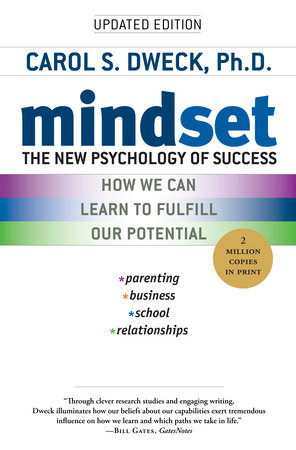
Dec 26, 2007 | ISBN 9780345472328
Feb 28, 2006 | ISBN 9781400062751
Feb 28, 2006 | ISBN 9781588365231
Feb 19, 2019 | ISBN 9780593150429
624 Minutes
Buy the Audiobook Download:
- audiobooks.com
About Mindset
From the renowned psychologist who introduced the world to “growth mindset” comes this updated edition of the million-copy bestseller—featuring transformative insights into redefining success, building lifelong resilience, and supercharging self-improvement. “Through clever research studies and engaging writing, Dweck illuminates how our beliefs about our capabilities exert tremendous influence on how we learn and which paths we take in life.”—Bill Gates, GatesNotes “It’s not always the people who start out the smartest who end up the smartest.” After decades of research, world-renowned Stanford University psychologist Carol S. Dweck, Ph.D., discovered a simple but groundbreaking idea: the power of mindset. In this brilliant book, she shows how success in school, work, sports, the arts, and almost every area of human endeavor can be dramatically influenced by how we think about our talents and abilities. People with a fixed mindset —those who believe that abilities are fixed—are less likely to flourish than those with a growth mindset —those who believe that abilities can be developed. Mindset reveals how great parents, teachers, managers, and athletes can put this idea to use to foster outstanding accomplishment. In this edition, Dweck offers new insights into her now famous and broadly embraced concept. She introduces a phenomenon she calls false growth mindset and guides people toward adopting a deeper, truer growth mindset. She also expands the mindset concept beyond the individual, applying it to the cultures of groups and organizations. With the right mindset, you can motivate those you lead, teach, and love—to transform their lives and your own.
Listen to a sample from Mindset
About carol s. dweck.
Carol S. Dweck, Ph.D., is widely regarded as one of the world’s leading researchers in the fields of personality, social psychology, and developmental psychology. She is the Lewis and Virginia Eaton Professor of Psychology at Stanford University, has been elected… More about Carol S. Dweck
Product Details
Category: psychology | self-improvement & inspiration | business, category: psychology | self-improvement & inspiration | business | audiobooks, you may also like.
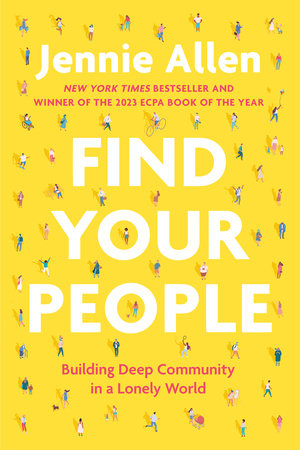
Find Your People
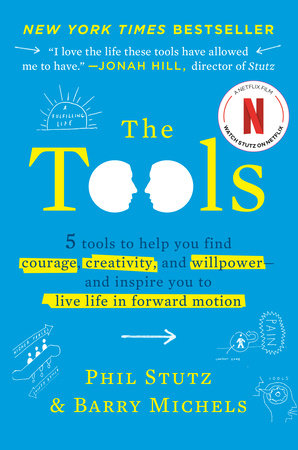
The Body Keeps the Score
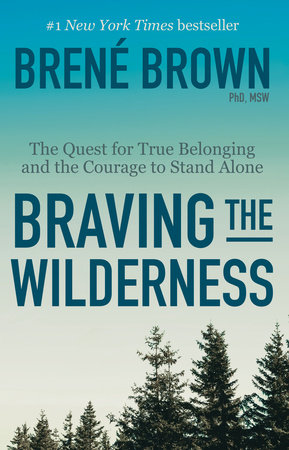
Braving the Wilderness
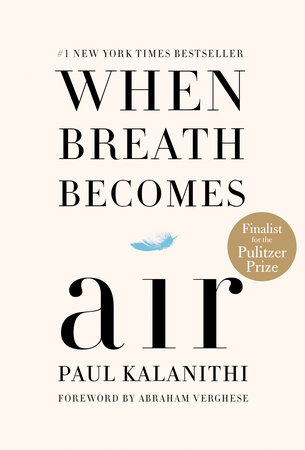
When Breath Becomes Air
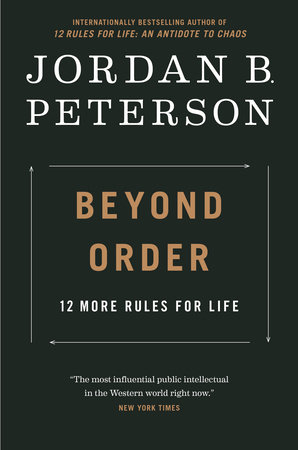
Beyond Order
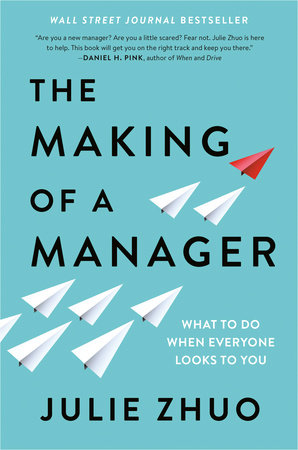
The Making of a Manager

An American Summer
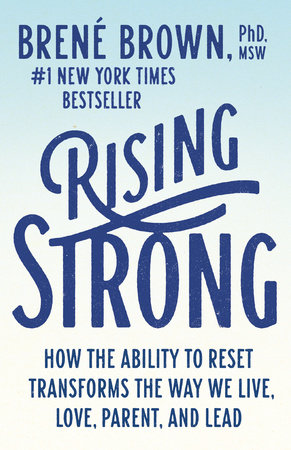
Rising Strong

Living Fully
“A good book is one whose advice you believe. A great book is one whose advice you follow. This is a book that can change your life, as its ideas have changed mine.” —Robert J. Sternberg, co-author of Teaching for Wisdom, Intelligence, Creativity, and Success “An essential read for parents, teachers [and] coaches . . . as well as for those who would like to increase their own feelings of success and fulfillment.” —Library Journal (starred review) “Everyone should read this book.” —Chip Heath and Dan Heath, authors of Made to Stick “One of the most influential books ever about motivation.” —Po Bronson, author of NurtureShock “If you manage people or are a parent (which is a form of managing people), drop everything and read Mindset .” —Guy Kawasaki, author of The Art of the Start 2.0
Visit other sites in the Penguin Random House Network
Raise kids who love to read
Today's Top Books
Want to know what people are actually reading right now?
An online magazine for today’s home cook
Just for joining you’ll get personalized recommendations on your dashboard daily and features only for members.
The Greatness Mindset Summary
1-Sentence-Summary: The Greatness Mindset offers a roadmap for defining a meaningful purpose for your life, several tools for overcoming the fears that might keep you from fulfilling said purpose, and a collection of exercises to keep you both going and in good spirits as you pursue your own unique path to greatness.
Favorite quote from the author:
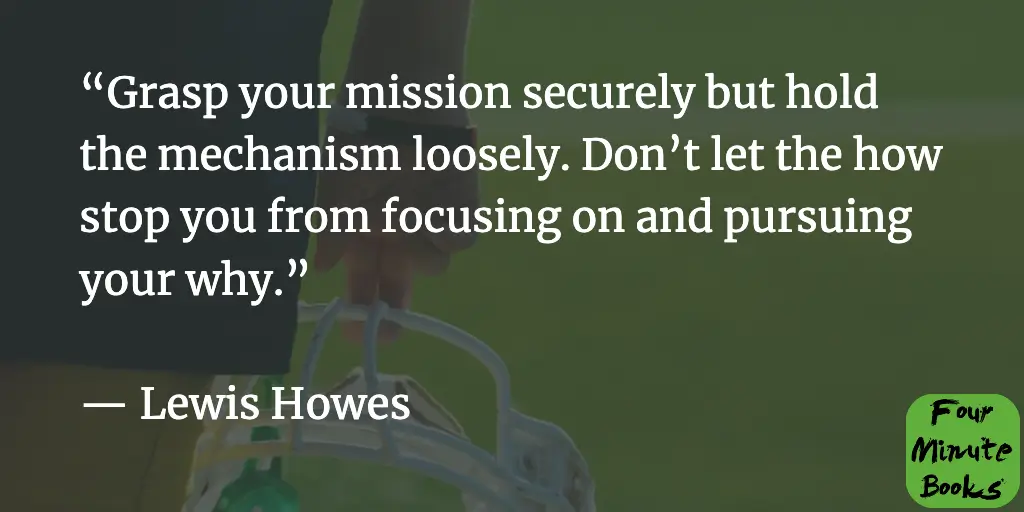
I’ve been going through a rough patch. After 8 years of slow-and-steady growth, my website took a huge hit, and now, if I can’t figure out a new business model soon, I’m not quite sure what to do.
If you’ve ever been in an ongoing crisis like that, you know it can weigh on you. You’ll worry all the time. And yet, you’ll still have awesome days in-between. Give me some music and good coffee, for exaple, and things rarely feel too bad!
But why can’t I have this mindset all the time ? After all, a struggling business is no reason not to feel great and do good work. Lewis Howes also had that question. Howes was promising athlete on track to become a pro football player. Then, a wrist injury shattered his dreams. For a year and a half, he slept on his sister’s couch, broke and depressed. But eventually, he recovered.
Today, Howes’ podcast, The School of Greatness , has more than 100 million downloads. In each interview, Lewis shows up with zest and optimism. In The Greatness Mindset , Howes provides tools you and I can use to keep our spirits high even when life is lowballing us.
Here are 3 lessons for building a forward-looking, relentlessly positive mind:
- Craft your Meaningful Mission Manifesto by combining passion, power, and a problem.
- Fight off self-doubt and 3 big fears with small daily actions.
- Develop a Greatness-Mindset-in-Motion to keep going until you achieve your dreams.
Let’s get into the mindset of greatness!
If you want to save this summary for later, download the free PDF and read it whenever you want.
Lesson 1: Consider 3 factors to come up with your Meaningful Mission Manifesto.
What finally got Lewis off his sister’s couch was a Toastmasters event. He wanted to get better at public speaking . While Lewis was stuffing his pockets with free snacks to save money, he met his future mentor Frank Agin.
Agin helped Lewis turn his LinkedIn skills into a booming networking business. But years later, even when the money was rolling, Lewis wasn’t happy. He had jumped in too quickly without thinking. He lacked a “Meaningful Mission,” something you can only find if you are “honest with yourself about yourself,” Lewis writes.
After some reflection, Howes sold the business to his partner and moved on to podcasting. He just somehow felt drawn to it . Today, Lewis’ mission is clear: “To serve 100 million lives weekly by helping them improve the quality of their lives and overcome the things that hold them back.”
To find your Meaningful Mission, you should consider 3 factors, Lewis suggests:
- Passion : What’s an activity where your heart is always truly in it? What excites you even when you do it for free?
- Power : What are your strengths? What can you build on with the right skills to create value?
- Problem : What’s a challenge real people have that you’re uniquely equipped to help them address?
Think about your Meaningful Mission. Then, write it down . It doesn’t have to be elegant or complicated. As long as it gets you going in the right direction, it can be the first step on the long path to greatness!
Lesson 2: Take small actions daily to keep the 3 big fears at bay.
Lewis struggles with dyslexia. He was sexually abused as a child. And in sports and business, Lewis has fallen on his face countless times — both literally and figuratively. The point? We’re all afraid . We all make mistakes, and we all doubt our abilities. But only when we let that doubt keep us from taking action will we have any regrets .
Lewis says 3 fears in particular add up to crippling self-doubt:
- The fear of failure . Everyone sucks at everything when they start out. But “worse than failing is the regret of not trying,” Lewis says.
- The fear of success . Sometimes, our imposter syndrome is so strong, we succumb to it before we even reach the peak of the mountain we’re trying to climb . Take life one day at a time!
- The fear of judgment . Nobody likes being judged, but also: Nobody thinks about you as much as you do. “This is your journey and yours only,” Priyanka Chopra Jonas once told Howes on his show.
How do we keep those fears at bay? By taking small actions every day. “I’ve written 7,500 blog posts in a row,” Seth Godin told Lewis. “Tomorrow morning, which will be a Friday, there will be another post. But it won’t be there because it’s the best post ever, nor will it be there because I decided to post it tomorrow. It will be there because it’s Friday. And I haven’t reconsidered that decision in 20 years.”
Start small and stay consistent , and self-doubt will get out of your way!
Lesson 3: To develop a Greatness-Mindset-in-Motion, stay aware of your thoughts, feelings, and behaviors.
Nothing great happens overnight. Therefore, even if you have your long-term vision locked in, you’ll still need to show up and move towards that vision every day. One of Lewis’ top tools for doing so? The “Mindset-in-Motion Cycle.” “Mindset by itself is neutral,” Lewis writes. “It can be positive or negative. It can be messy or it can be clean.”
To consistently stay in good spirits and take action, you must align on 3 dimensions, Lewis suggests:
- Your thoughts . What’s the color of the conversation inside your mind?
- Your emotions . Can you let feelings pass through without them hijacking you all the time?
- Your behavior . In the end, only action will take you to your goals.
“The right thoughts produce better behavior and lead to better emotions,” Lewis writes. “The right emotions lead to better behavior and lead to greater thoughts. And the right behavior reinforces better thoughts, which leads to better emotions.”
When there’s tension between these 3, they can disrupt and negate one another. But they can also align and reinforce each other. Get them into a perfect cycle, and you’re rolling. You’ll move towards your vision with speed and determination, and that is what greatness is all about.
How do you do this? Awareness , Howes says. “As you learn to navigate these 3 components, you gradually move from who you were to who you are becoming.” Stay present, and may your thoughts, emotions, and behavior always work together!
The Greatness Mindset Review
The Greatness Mindset is an uplifting read. It also offers an interesting set of tools and exercises. It’s not the world’s most groundbreaking self-help book, but in sharing what he’s learned from his own journey and his guests, Howes has built a collection of ideas worth browsing. Even if you only implement 1 or 2 of them, it’ll be well worth your time!
Who would I recommend our The Greatness Mindset summary to?
The 19-year-old college athlete who is slowly realizing she’ll never turn pro, the 35-year-old creator who doesn’t know if he has the strength to start over after shutting down his business, and anyone who feels their mind is heavier than it should be on most days.
Last Updated on April 20, 2024
Niklas Göke
Niklas Göke is an author and writer whose work has attracted tens of millions of readers to date. He is also the founder and CEO of Four Minute Books, a collection of over 1,000 free book summaries teaching readers 3 valuable lessons in just 4 minutes each. Born and raised in Germany, Nik also holds a Bachelor’s Degree in Business Administration & Engineering from KIT Karlsruhe and a Master’s Degree in Management & Technology from the Technical University of Munich. He lives in Munich and enjoys a great slice of salami pizza almost as much as reading — or writing — the next book — or book summary, of course!
*Four Minute Books participates in the Amazon Services LLC Associates Program, an affiliate advertising program designed to provide a means for sites to earn advertising commissions by linking to Amazon. We also participate in other affiliate programs, such as Blinkist, MindValley, Audible, Audiobooks, Reading.FM, and others. Our referral links allow us to earn commissions (at no extra cost to you) and keep the site running. Thank you for your support.
Need some inspiration? 👀 Here are... The 365 Most Famous Quotes of All Time »
Share on mastodon.

Pickleball Mindset: The Blueprint for Peak Performance
Dayne gingrich , jill martin.
170 pages, Kindle Edition
Published April 9, 2024
About the author

Dayne Gingrich
Ratings & reviews.
What do you think? Rate this book Write a Review
Friends & Following
Community reviews.

Join the discussion
Can't find what you're looking for.

IMAGES
VIDEO
COMMENTS
Carol S. Dweck. 4.10. 150,915 ratings11,002 reviews. A newer edition of this book can be found here. After decades of research, world-renowned Stanford University psychologist Carol S. Dweck, Ph.D., discovered a simple but groundbreaking idea: the power of mindset. In this brilliant book, she shows how success in school, work, sports, the arts ...
The lowdown on Mindset by Carol Dweck. Mindset by Carol Dweck is a fundamental book that everyone should read.. It focuses on changing the way we think to fulfil our potential. Within the book, Dweck explores the power of our mindset and how success doesn't just depend on our abilities or talent but rather on how we approach our goals; with a fixed or growth mindset.
Dr. Carol S. Dweck, the Professor of Psychology at Stanford, demonstrates in her book "Mindset," how a person's perspective on their own abilities and the range of possible mindsets has a significant impact on their performance in school, work, sports, the arts, and pretty much any other area of human endeavor. Dweck explains the distinction between what she calls "fixed" and ...
"Mindset: The New Psychology of Success" by Carol S. Dweck is a groundbreaking book that explores the concept of mindset and its impact on achievement, success, and personal development ...
Carol S. Dweck's book "Mindset: The New Psychology of Success" provides a groundbreaking examination of the influence of mindset on people's attitudes, behaviours, and accomplishments.
The book, according to the author. "In my work I've discovered that people can have different mindsets about their talents and abilities, and that these mindsets make a big difference. Some people believe that their talents and abilities are fixed traits - they have a certain amount and that's that. We call this a fixed mindset.
Here's how Dweck puts it: "From the point of view of the fixed mindset, effort is only for people with deficiencies…. If you're considered a genius, a talent, or a natural—then you have a lot to lose. Effort can reduce you.". If you have the fixed mindset and believe you lost the genetic lottery, you also have little incentive to ...
Carol S. Dweck describes in her "Mindset: The New Psychology of Success" how the thoughts of our abilities can influence success. According to Dweck, people who think they have limited capabilities cannot succeed. On the other hand, those who believe there is no limitation to their abilities can excel in their life.
Chris Dismissed Rating: 8.5/10. Overview: Solid book on the impact that a fixed and growth mindset can have on learning, success, and quality of life. This book is very focused on mindset and stays true to its title. Read Mindset if you want to change your mental approach to life.
Mindset: The New Psychology of Success. Paperback - December 26, 2007. From the renowned psychologist who introduced the world to "growth mindset" comes this updated edition of the million-copy bestseller—featuring transformative insights into redefining success, building lifelong resilience, and supercharging self-improvement.
A "growth mindset" thrives on challenge, and sees failure, not as evidence that you have no talent whatsoever, but as an opportunity for growth. A big part of our educational system is built on the belief, for example, that intelligence is a fixed entity. This book washes the floor with this unfounded statement.
Book Review #80: Noise by Daniel Kahneman, Olivier Sibony and Cass R. Sunstein Empower project managers for success in the AI era through essential leadership and adaptability and jump your career ...
Carol S. Dweck | 4.29 | 85,124 ratings and reviews. Recommended by Tony Robbins, Bill Gates, Ev Williams, and 29 others. See all reviews. Ranked #1 in Education, Ranked #1 in Mindset — see more rankings. Now updated with new research — the book that has changed millions of lives. After decades of research, world-renowned Stanford University ...
The book's relatable examples and research-based approach make it accessible and applicable to various areas of life, from education to business and beyond. "Mindset: The New Psychology of Success" is a captivating exploration of the impact of our mindset on our achievements and personal growth.
The view you adopt for yourself profoundly affects the way you lead your life. "Believing that your qualities are carved in stone—the fixed mindset—creates an urgency to prove yourself over and over.". "People in a growth mindset don't just seek challenge, they thrive on it.". "The growth mindset does allow people to love what ...
Through a wide range of experiments and case studies, Dweck explains a myriad of ways beliefs impact life from achievement to relationships to business. The book also covers strategies for fostering a growth mindset. By the end, it's clear Growth mindset influences almost every arena of life and is worth cultivating.
Mindset is based upon the premise that there are two mindsets that people use to frame themselves and their lives. Dweck argues that one of these mindsets, the fixed mindset, holds people back and has many negative consequences on wellbeing and potential for growth for both children and adults. The purpose of the book is to lay out how each ...
The revised and updated edition of "Mindset" includes new insights, research findings, and real-life examples, making it even more relevant and impactful. Dweck expands on the core concepts and shares additional strategies for fostering a growth mindset in different domains, such as relationships, parenting, education, and leadership.
About Mindset. From the renowned psychologist who introduced the world to "growth mindset" comes this updated edition of the million-copy bestseller—featuring transformative insights into redefining success, building lifelong resilience, and supercharging self-improvement."Through clever research studies and engaging writing, Dweck ...
The Amazon Book Review Book recommendations, author interviews, editors' picks, and more. Read it now. Similar items that may ship from close to you. ... Dr. Carol Dweck's book on mindset may be one of the most important books I have ever read. It really opened my eyes concerning teaching, parenting and overall personal development. ...
The 37-year-old actor, who thinks it's too late to change careers, the 16-year-old, cocky high school student, who never studies because good grades fall into his lap, and anyone who believes talent is all you need and if you don't have it, you're screwed. Last Updated on July 25, 2022.
The Greatness Mindset Review. The Greatness Mindset is an uplifting read. It also offers an interesting set of tools and exercises. It's not the world's most groundbreaking self-help book, but in sharing what he's learned from his own journey and his guests, Howes has built a collection of ideas worth browsing.
After decades of research, world-renowned Stanford University psychologist Carol S. Dweck, Ph.D., discovered a simple but groundbreaking idea: the power of mindset. In this brilliant book, she shows how success in school, work, sports, the arts, and almost every area of human endeavor can be dramatically influenced by how we think about our ...
The Amazon Book Review Book recommendations, author interviews, editors' picks, and more. Read it now. Frequently bought together. This item: Mindset - Updated Edition: Changing The Way You think To Fulfil Your Potential . $13.15 $ 13. 15. Get it May 2 - 8. Usually ships within 5 to 6 days.
4.83. 6 ratings1 review. Not just another book about how to play pickleball, Pickleball Mindset dives deep into how to think on the court. Coauthored by Dayne Gingrich, top senior professional pickleball player and renowned mental performance coach; and Jill Martin, an attorney turned personal trainer and pickleball fanatic, the book follows ...